










Many critics of the Bible vilify those who believe in the Bible as bigots and ignorant science deniers. But they themselves are ignorant of the fact that the foundations of modern science were laid largely by men who believed in God and the Bible.


For example, the brilliant 17th-century British mathematician and physicist Sir Isaac Newton wrote: “This beautiful system of the sun, planets and comets could only proceed from the counsel and dominion of an intelligent and powerful Being.”
He also stated: “There are more sure marks of authenticity in the Bible than in any profane history,” and “I have a fundamental belief in the Bible as the Word of God, written by men who were inspired. I study the Bible daily.”
Many great pioneers of science examined the evidence and concluded that it proved the existence of God and that the Bible was His inspired Word. For many, their belief in an orderly universe established by the power and genius of an almighty Creator lay behind their scientific investigations.
For example, the German-born British astronomer Sir William Herschel (1738-1822), discoverer of the planet Uranus, said, “All human discoveries seem to be made only for the purpose of confirming more and more strongly the truth contained in the Sacred Scriptures.”
The great Polish astronomer Nicolaus Copernicus (1473-1543), whose idea that the earth revolves around the sun laid the foundation for our understanding of our solar system, wrote: “For who, after applying himself to things which he sees established in the best order and directed by divine ruling, would not through contemplation of them . . . admire the Artificer of all things, in whom is all happiness and every good?”
The famous Italian astronomer, mathematician and physicist Galileo Galilei (1564-1642), whose astronomical observations revolutionized our view of the universe, noted, “When I reflect on so many profoundly marvelous things that persons have grasped, sought, and done, I recognize even more clearly that human
Scott Ashley Managing editorintelligence is a work of God, and one of the most excellent.”
German astronomer and mathematician Johann Kepler (1571-1630), who laid the groundwork for understanding the laws of planetary motion, saw divine order in the movements of heavenly bodies that reflected the existence of a Creator. He observed, “Geometry . . . [is] coeternal with God . . . and reflecting in the Divine mind has supplied God with the examples . . . for the furnishing of the world so that it became the best and most beautiful, and also the most similar to the Creator.”
English physician, anatomist and physiologist William Harvey (1578-1657) discovered how the circulatory system of the human body functions. His work pioneered the scientific method and affected scientific research for centuries. His studies of human and animal anatomy led him to conclude: “We acknowledge God, the Supreme and Omnipotent Creator, to be present in the production of all animals . . . All things are indeed contrived and ordered with singular providence, divine wisdom, and most admirable and incomprehensible skill.”
More recently, Wernher von Braun (1912-1977), rocket scientist and father of the U.S. space program, said, “In this age of space flight, when we use the modern tools of science to advance into new regions of human activity, the Bible . . . this grandiose, stirring history of the gradual revelation and unfolding of moral law . . . remains in every way an up-to-date book.”
The understanding of our planet, solar system, the universe and the human body rests on the foundational work of scientific giants like these. They saw no conflict between God, science and the Bible. To again quote Sir Isaac Newton, “I study the Bible daily.” And so should we! The articles in this issue will help you understand Psalm 119:105, which says God’s Word is “a lamp to my feet and a light to my path.” May you let it light the way in your life!
The Bible is in the crosshairs at school, in education and in the media. Can you prove whether it is truly the inspired Word of God? Remarkably, the latest discoveries from the James Webb Space Telescope point us back to the revealed Word of the Creator.
by Mario SeiglieCan you prove the Bible is God’s Word? If you can, it could dramatically change your life— and greatly improve its quality!
Back in 1963, a Gallup poll showed two out of three Americans believed “the Bible is the actual word of God and is to be taken literally, word for word.” Now, however, a Gallup poll in 2022 showed only one in five believe the same thing—a catastrophic drop! This means that in the past 60 years, America went from a large majority (66 percent) believing the Bible was the literal Word of God to now only a small minority (20 percent) accepting that.
Sadly, most of what you see and read about the Bible in education and the mass media has quite a liberal slant, reflecting a more godless and morally relativistic society. It can easily cast doubt on the overall validity of Scripture. Could you come to doubt it yourself? Where can we look for proof that the Bible is truly God’s Word?
The answer is literally everywhere. The evidence is highlighted for us in many scientific fields!
One of those proofs is the amazing design of the human body, with unique features that enable human beings to vastly excel over any other living creature.
(We examine some of this evidence in the article “The Uniqueness of the Human Body” beginning on page 9.)
Also, archaeological and historical findings support the biblical account, and some of these discoveries are quite recent, as you can read and marvel at in the articles “Recent Discoveries Support the Biblical Record” and “Archaeology and History Confirm Biblical Figures” beginning on pages 12 and 14. Space prevents us from covering far more evidence from such fields as biology, botany, chemistry, physics and geology, besides many others.
One field of science that increasingly points to the existence of a Creator God and the veracity of Scripture is the area of cosmology, the study of the universe.

In 2022, the James Webb Space Telescope, close to 100 times more powerful than its predecessor, the Hubble Space Telescope, began sending back spectacular photos of the cosmos.
What the telescope is revealing has shocked the scientific community. It’s not been as expected. The universe has turned out to be far more fine-tuned than they ever imagined. How do these discoveries harmonize with the biblical record? Keep reading for the surprising results!
In short, we find many proofs that the Bible is God’s Word, if we keep an open mind and the Bible open.
We can then see all the evidence that surrounds us, thank our Creator for it and develop a more personal relationship with Him. As King David once said, “I will praise you, Lord, with all my heart; I will tell of all the wonderful things you have done” (Psalm 9:1, Good News Translation).
On July 11, 2022, amazing photographs from the 10-billion-dollar James Webb Space Telescope started arriving in public view. Astronomers, in particular, were awestruck by what it revealed. With its primary 21-ft.wide mirror and infrared imaging, and placement a million miles from earth at a gravitationally stable

the whole picture of early galaxy formation into question’” (“‘Impossibly Massive Galaxies’ Discovered at the Dawn of the Universe, Researchers Say,” USA Today, Feb. 23, 2023, emphasis added throughout).
How do these unexpected findings of the most advanced telescope in existence match up with what the Bible describes about the origin and development of the universe? You might think this is an unfair matchup, but the results could surprise you. Judge for yourself.
Though finding galaxies fully formed at very early stages, observations with the James Webb Space Telescope remain consistent with the universe having had a beginning.
Science philosopher Dr. Stephen Meyer explains: “If the physical universe of matter, energy, space and time had a beginning—as observational astronomy and theoretical physics suggest—it’s hard to envision a physical cause for such an event. After all, it was matter and energy that first came into existence at the Big Bang. Before that, no matter or energy—no physics—would have yet existed that could have caused the universe to begin.
“Such considerations have led some scientists—Israeli physicist Gerald Schroeder, the late Caltech astronomer Allan Sandage and Nobel laureate Arno Penzias—to affirm a creator beyond space and time. Others remain agnostic about ultimate origins.
location called the second Lagrange point (L2), the telescope showed a universe teeming with galaxies that were more massive, better structured, and formed much earlier than scientists had previously thought.
“Because of the galaxies’ age and massiveness,” relates science writer Wyatte Grantham-Philips, “the [James Webb Space Telescope] team’s discovery conflicts with 99% of existing models for the origins of the universe. The findings call on scientists to rethink fundamental understandings of early galaxy formation.
“‘We looked into the very early universe for the first time and had no idea what we were going to find,’ [astronomer Joel] Leja said. ‘It turns out we found something so unexpected it actually creates problems for science. It calls
“Yet, irrespective of philosophical perspective, the vast majority of physicists and astronomers have followed the evidence to its logical conclusion: the universe had a beginning; there was a Big Bang. Certainly, the James Webb Space Telescope has revealed nothing to overturn this consensus or the considerable body of evidence supporting it” (“Here’s Why James Webb Telescope Discoveries Are Causing Scientists to Rethink Galaxy Formation (but Not the Big Bang),” DailyWire.com, Sept. 22, 2022).
It should be pointed out that the term “Big Bang” is not a very accurate term and was originally used by British astronomer Fred Hoyle in a derisive way.
“The Big Bang is a really misleading name for the expanding universe that we see,” notes John Mather, a winner of the Nobel Prize in Physics and the James Webb Space Telescope’s senior project scientist. “The name Big Bang conveys the idea of a firecracker exploding at a time and a place—with a center. The universe doesn’t have a center. The Big Bang happened everywhere at once and was a process happening in time, not a point in time. We know this because 1) we see galaxies rushing away from each other, not from a central point and 2) we
“Each year brings new scientific evidence of wonder, facts for which there are essentially no explanations without God, no believable way around the wonder.”The James Webb Space Telescope was launched in December 2021 to an area in space far beyond the orbit of the moon.
see the heat that was left over from early times, and that heat uniformly fills the universe” (“Webb Telescope & The Big Bang,” NASA.gov, 2017).
Of all ancient writings, the Bible is the one that mentions a beginning of the universe arising from nothing. As Genesis 1:1 says: “In the beginning, God created the heavens and the earth.” It is noteworthy that the term used here for “created” is bara in the Hebrew. This word “always means to create, and is only applied to a divine creation, the production of that which had no existence before” (Keil and Delitzsch Commentary on the Old Testament, note on Genesis 1:1).
The discovery that the universe had a beginning posed a real dilemma for the modern scientific community with its commitment to material naturalism, including the rejection of the need for a Creator. The late NASA executive and astronomer Robert Jastrow readily admitted: “A sound explanation may exist for the explosive birth of our Universe; but if it does, science cannot find out what the explanation is. The scientist’s pursuit of the past ends in the moment of creation. This is an exceedingly strange development, unexpected by all but the theologians. They have always accepted the word of the Bible: ‘In the beginning God created heaven and earth.’ It is unexpected because science has had such extraordinary success in tracing the chain of cause and effect backward in time.
“Now we would like to pursue that inquiry farther back in time, but the barrier to further progress seems insurmountable. It is not a matter of another year, another decade of work, another measurement, or another theory; at this moment it seems as though science will never be able to raise the curtain on the mystery of creation.
“For the scientist who has lived by his faith in the power of reason, the story ends like a bad dream. He has scaled the mountains of ignorance; he is about to conquer the highest peak; as he pulls himself over the final rock, he is greeted by a band of theologians who have been sitting there for centuries” (God and the Astronomers, 1992, p. 107).
The James Webb Space Telescope has confirmed the universe has been expanding since its inception.
As reported at Space.com: “[The James] Webb [Space Telescope] was made to observe the most distant galaxies in the universe, and in mid-December [2022], scientists confirmed that they had done just that. The telescope has
officially observed the four most distant galaxies known, which also means they are the oldest . . . Researchers confirmed their age, analyzing data from the telescope’s Near Infrared Spectrograph to find out how fast the galaxies were moving away from the telescope. This is the galaxies’ redshift—how much the wavelengths of light they shed have lengthened as the universe expands” (Rebecca Sohn, “12 Amazing James Webb Space Telescope Discoveries Across the Universe,” Feb. 9, 2023).
Indeed, the Bible repeatedly reveals the universe has expanded from creation. The prophet Isaiah wrote, “Thus says God the Lord, who created the heavens and stretched them out, who spread forth the earth and that which comes from it, who gives breath to the people on it, and spirit to those who walk on it” (Isaiah 42:5).
Jeremiah adds, “He has made the earth by His power, He has established the world by His wisdom, and has stretched out the heavens at His discretion” (Jeremiah 10:12).
Significant among the recent findings of the new space telescope is how quickly and orderly the galaxies formed, even containing advanced metallic elements long before astronomers predicted these could have developed.
A U.S. Cornell University team of astronomers explained: “Most surprising about these galaxies [seen by the Webb telescope], considering their age and mass, was their mature metallicity— amounts of elements heavier than helium and hydrogen, such as carbon,

“A sound explanation may exist for the explosive birth of our Universe; but if it does, science cannot find out what the explanation is.”
oxygen and nitrogen—which the team estimated to be similar to our sun. Compared to the sun, which is about 4 billion years old and inherited most of its metals from previous generations of stars that had roughly 8 billion years to build them up, we are observing these galaxies at a time when the universe was less than 1.5 billion years old.
“‘We are seeing the leftovers of at least a couple of generations of stars having lived and died within the first billion years of the universe’s existence, which is not what we typically see,’ [research associate Dr. Amit] Vishwas said. ‘We speculate that the process of forming stars in these galaxies must have been very efficient and started very early in the universe, particularly to explain the measured abundance of nitrogen relative to oxygen, as this ratio is a reliable measure of how many generations of stars have lived and died” (“Astronomers
expansion, with matter, energy and the physical forces in just the right time, place and proportions. In fact, the cosmic elements continue to follow these interacting physical laws until today, permitting advanced life to appear and thrive.
The Bible speaks of these physical laws created by God that control the universe to produce order, harmony and balance. The prophet Jeremiah was inspired to write, “But I, the Lord, have a covenant with day and night, and I have made the laws that control earth and sky” (Jeremiah 33:25, GNT).
Another startling discovery made by the James Webb Space Telescope deals with the cosmos being controlled by invisible, unknown and enormously great forces as it rushes outward.
Discover Metal-Rich Galaxies in the Early Universe,” Cornell Chronicle, Feb. 27, 2023).
Here again is reported confirmation of the universe being so orderly and amazingly fine-tuned to allow for the existence of physical life.
The key to understanding this orderliness is found in the natural laws God established from the start. Nothing was left to chance. The universe did not blindly or haphazardly “evolve” on its own as many think, but was in fact carefully designed and orchestrated as an elegant
The evidence is overwhelming. There is a God. He is your Maker. And you can come to know Him, for He desires a relationship with you. To further explore this great truth, send for or download our free study guide Life’s Ultimate Question: Does God Exist?
BTmagazine.org/booklets
In a CBS 60 Minutes interview with journalist Scott Pelley, astronomer Matt Mountain commented about the immense number of galaxies the Webb telescope has detected: “These were not artifacts from the detector. These were not strange stars. The whole of the sky was filled with galaxies. There was no empty sky. And that’s when I went, ‘This telescope’s going to be phenomenal’ . . . It tells us that our universe is filled with galaxies . . . There is no empty sky with James Webb. That is what we have discovered” (“NASA’s Webb Telescope Captures New Views of Stars, Galaxies and the Early Universe,” April 9, 2023).
In later narration, Pelley noted Mountain discussing the finding that “galaxies are rushing away from each other at greater and greater speed, defying gravity. It makes no sense, so scientists infer that there must be unseen elements at work. They call them dark energy and dark matter.” Mountain stated: “Whenever you hear the term ‘dark energy,’ or ‘dark matter,’ this means we don’t know what it is. We’re not that imaginative. But it is a force, it is 95 percent of our universe. And we have no idea what it is . . . We are lucky if we even understand 4 percent of our universe today. Astronomy is a very humbling discipline.”
Yet, despite astronomy being a so-called humbling career, the majority of today’s scientists still refuse to accept the logical conclusion derived from analyzing the exquisitely fine-tuned universe suited for advanced life—the need to take a Creator God into account. Interestingly, the Bible tells us that God once asked


You’ll find much more helpful biblical material on our website, including


the patriarch Job some key questions about the cosmos—challenges He could still pose to astronomers today: “Can you arrange stars in groups such as Orion and the Pleiades? Do you control the stars or set in place the Big Dipper and the Little Dipper? Do you know the laws that govern the heavens, and can you make them rule the earth?”
(Job 38:31-33, Contemporary English Version). The answer is still the same. God and His creation of the universe are way out of their league! (See Isaiah 55:8-9; Ecclesiastes 3:11.)

Regarding the invisible force said to underlie 95 percent of the universe that has scientists stumped, God’s Word seems to speak to that in declaring: “Christ is exactly like God, who cannot be seen. He is the first-born Son, superior to all creation. Everything was created by him, everything in heaven and on earth, everything seen and unseen, including all forces and powers . . . All things were created by God’s Son, and everything was made for him. God’s Son was before all else, and by him everything is held together” (Colossians 1:15-17, CEV). Also, “By his own mighty word, he holds the universe together” (Hebrew 1:3, CEV).
So, if dark energy and dark matter turn out to be spiritual in nature or a result of God’s spiritual power interacting with physical elements of the cosmos, scientists will never discover what these are through physical means but would be limited to measuring their detectable effects.

Perhaps the findings of the new space telescope can be compared to the answers from an interview The New York Times did more than 40 years ago with a previously mentioned earlier winner of the Nobel Prize in Physics, Arno Penzias, codiscoverer of the cosmic microwave
background radiation.


Speaking about the discovery of the universe having a beginning and also of its expansion, he noted, “But it seems to me that the data we have in hand right now clearly show that there is not nearly enough matter in the universe, not enough by a factor of three, for the universe to be able to fall back on itself ever again.”
And then followed this remarkable statement: “‘My argument,’ Dr. Penzias concluded, ‘is that the best data we have are exactly what I would have predicted, had I had nothing to go on but the five books of Moses, the Psalms, the Bible as a whole’” (Malcolm Browne, “Clues to Universe Origin Expected,” March 12, 1978).
Today, the amazing discoveries and photos from the James Webb Space Telescope have so far confirmed the basic biblical account of the cosmos, described thousands of years ago, when telescopes did not even exist! How could that happen?
Only through revelation from God. Let us treasure the truth He reveals and live by the precepts of His Word. As Moses was inspired to write: “The secret things belong to the Lord our God, but those things which are revealed belong to us and to our children forever, that we may follow all the words of this law” (Deuteronomy 29:29). May we all act on the truth before us!
Many believe that life on earth arose by chance, with human beings as merely more-evolved apes. But the evidence in our makeup says otherwise—pointing to human beings as a special creation.
King David once described his own human body as being “fearfully and wonderfully made” (Psalm 139:14). Although it’s now common for biology textbooks to consider people as simply animals, many features make the human body unique.
Let’s look at five of these singular differences.
Consider, for instance, the geometric symmetry of the human body. Leonardo da Vinci, the great artist, inventor and mathematician, made a famous drawing of it.
It’s called the “Vitruvian Man” (see illustration above), in which Leonardo drew a man’s figure with arms and legs extended. He found it fit perfectly into both a square and a circle, the span of the arms being approximately the same as the man’s height.
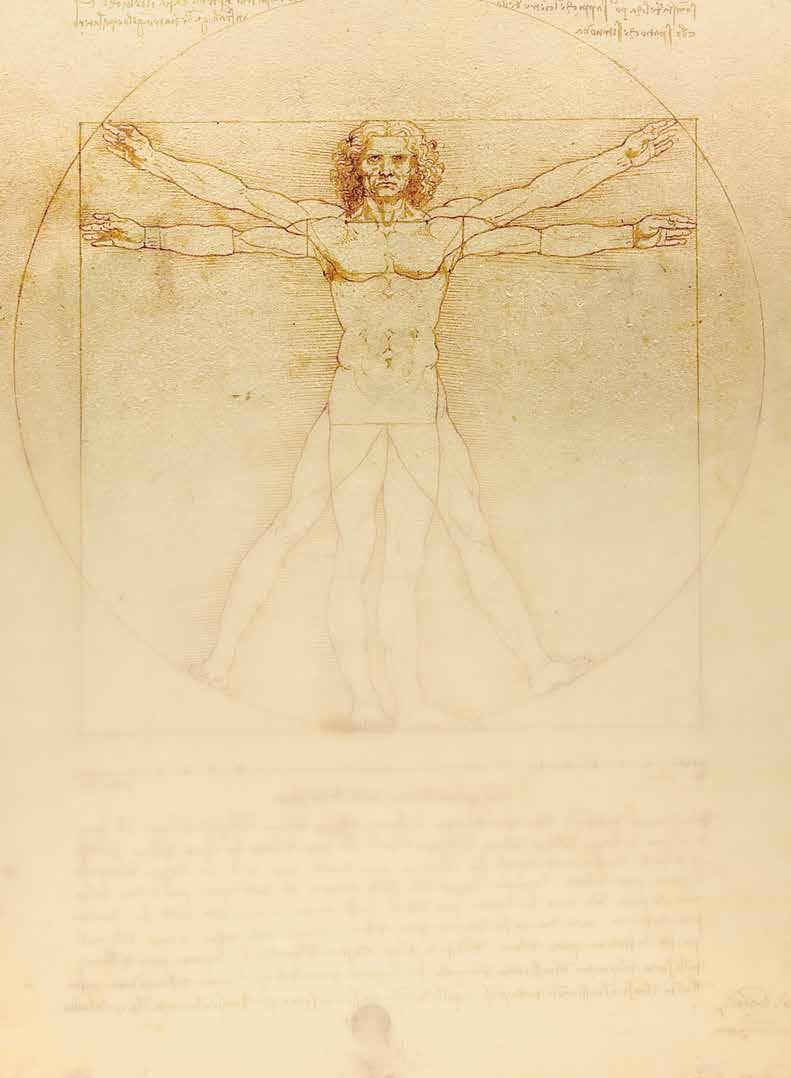
In addition, when the legs were measured, they were approximately
by Mario Seigliehalf the man’s height, and his navel was located at the center of the circle. Could all of this precise symmetry have been a result of chance? Or doesn’t it show how truly carefully designed and proportioned the human body was made?
As David went on to say, “You even formed every bone in my body when you created me in the secret place, carefully, skillfully shaping me from nothing to something” (Psalm 139:15, The Passion Translation, emphasis added).
We tend to take for granted how easily we can stand straight and walk erectly on two legs. Yet there is a uniqueness to how the human body can effortlessly balance itself while walking or running.
Some believe apes and human beings have similar gaits, but they don’t. People are designed to walk upright, while apes were created
to live mainly in and among trees, being able to grasp branches with all four limbs. That’s why humans are classified as bipeds (walking on two feet), while apes and monkeys are classified as quadrupeds (walking on four limbs). Apes and monkeys also are ungainly when they walk on two feet, while human beings can gracefully walk erect or speedily run long distances.
Human beings have several anatomical components that are unique. Three of these are the backbone, with its three curves to reduce the load level of the body, the upright knee and the hip joint. Also, the neck and skull joints allow people to carry their heads erect and to face forward without great effort. Lastly, the human foot has a special arch that’s not found in other creatures. It allows one to push either from the front or the back of the foot, giving it tremendous power and balance to lift, jump, twist or run.
Again we have the testimony of Leonardo da Vinci, who knew human anatomy so well. He wrote in his notebooks, “The human foot is a masterpiece of engineering and a work of art.”
Stuart Burgess, who taught engineering design at leading United Kingdom universities, states: “Creationists believe that the upright human skeleton could not have evolved step by step from a fourlimbed creature because many features are required simultaneously. If an ape-like creature had only some of the features required for an upright stature, it would not be able to move properly on either two or four limbs” (In God’s Image: The Divine Origins of Humans, 2008, p. 7).

In contrast to an ape’s hand, the human hand has a long and fully opposable thumb, where each finger can make direct contact with the tip of the thumb. This allows for carefully grasping objects, like holding a pen for writing, having a delicate touch for typing, playing the piano or performing surgery. Apes don’t have these abilities since their fingers are curved for gripping tree branches.
Furthermore, human fingers have a wider range of motion and can swivel in many angles, allowing them to sculpt fine works of art and participate in many types of sports where balls can be thrown, caught or hit with great precision.
It was another genius like Da Vinci, Sir Isaac Newton, who is quoted as saying, “In the absence of any other proof, the thumb alone would convince me of God’s existence” (Charles Dickens’ literary magazine All the Year Round, 1864, Vol. 10, p. 346).
There are numerous features of
human anatomy that permit people to speak, laugh and sing that apes and monkeys don’t have.
First, human beings have long and deep throats that are essential for producing varied speech and act like a wind instrument. Apes and monkeys, on the other hand, have shallow throats that hinder precise articulation. Our vocal cords are also unique, with some 100 muscles involved overall in the fine-tuning of the voice.
Next are human lips and tongues, which are likewise unique. The lips have the ability to tighten or loosen their muscles to enunciate short or long syllables and act like an adjustable valve of a trumpet. The versatile tongue can fine-tune the articulation of sounds by varying the amount of air coming from the lungs. It does it so rapidly that it can produce up to 90 words per minute!
As Professor Burgess brings out: “Humans have the unique ability to communicate through intricate language. There are approximately 5,000 different languages currently
used around the world. Each of these languages involves intricate sounds, sophisticated grammar and a large number of words . . . The ability to speak and sing is just what would be expected if humans had been created, but is not what would be expected if humans had evolved from an ape-like creature” (p. 13).
God, in fact, once stated in regard to speaking, “Who has made man’s mouth? . . . Have not I, the Lord?” (Exodus 4:11).
“The human brain,” Burgess further notes, “is the most intricately designed structure known to man. The capacity of the human brain is astounding. The brain receives millions of pieces of information every second from sensors around the body” (p. 19).
How does the brain do it?
Inside our heads we have, on average, 86 billion neurons—up to three times more neurons than those of apes. Each neuron can have up to 10,000 signal-connecting gaps called
“In the absence of any other proof, the thumb alone would convince me of God’s existence.”
—Sir Isaac Newton
synapses, meaning the brain has some 860 trillion neural connections. It needs all these connections to manage the multiple tasks the human body needs to operate and remain healthy.
We are also endowed with consciousness or sentience, the capacity for abstract thinking, self-awareness and human emotions. The Bible reveals we have a spiritual component to our existence that imparts our marvelous ability to reason to our brains. As Job 32:8 says, “There is a spirit in man, and the breath of the Almighty gives him understanding” (compare 1 Corinthians 2:11).
The human spirit and brain together form the human mind. This gift from God has enabled people to, for example, compose music, build architectural masterpieces, write books and explore the moon. No other physical creature has the capacity to do any of these things.
Our human mind shows we were created for a purpose beyond just surviving here on earth. We were made to communicate with not only our fellow man, but also with our Creator God. This comes through the spiritual element in our existence, although many seek to deny it.
As is stated in Genesis 1, God created the various animals each “according to its kind” (verse 25). But then He said: “Let Us make man in our image, according to our likeness; let them have dominion over the fish of the sea, over the birds of the air, and over the cattle, over all the earth and over every creeping thing that creeps on the earth. So God created man in His own image; in the image of God He created him; male and female He created them” (verses 26-27, emphasis added).
Here is the reason for the uniqueness of humanity. We are not made in accordance with the various animal kinds, but according to the “God” kind—that is, in His image, although initially created at a physical and much lower level (Hebrews 2:6-8).
Mindful of all this, may we all join with David in concluding with the words of Psalm 100:3: “Know that the Lord, He is God; it is He who has made us, and not we ourselves; we are His people and the sheep of His pasture.”
For more evidence that we and the whole universe are the product of design, download or request our study guide Life’s Ultimate Question: Does God Exist? And to understand His purpose in making us, also request Why Were You Born? Both are available free of charge.


BTmagazine.org/booklets

Who’s behind the Beyond Today magazine and television program? Many readers have wondered who we are and how we are able to provide Beyond Today free to all who request it. Simply put, Beyond Today is provided by people—people from all walks of life, from all over the world, as enabled by God. These people have a common goal—to proclaim the gospel of the coming Kingdom of God to all the world and to teach all nations to observe what Christ commanded (Matthew 24:14; 28:19-20).

We are dedicated to proclaiming the same message Jesus Christ brought—the wonderful good news of the coming Kingdom of God (Matthew 4:23; Mark 1:14-15; Luke 4:43; 8:1). That message truly is good news—the answer to all the problems that have long plagued humankind.
Through the pages of this magazine, on the airwaves of our TV show, and in dozens of helpful study guides (also free), we show the biblical answers to the dilemmas that have defied human solution and threaten our very survival.

We are committed to taking that message to the entire world, sharing the truth of God’s purpose as taught by Jesus Christ and His apostles.
The United Church of God has congregations and ministers around the world. In these congregations believers assemble to be instructed from the Scriptures and to fellowship. For locations and times of services in your area, contact us at the appropriate address on page 31. Visitors are always welcome.

For additional information, visit our website:
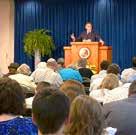
Archaeological discoveries are regularly made that relate to the Bible. Here is an annotated list of recent reports of such finds.
Pig and unclean fish remains in ancient Judah (May 24, 2021). The intact skeleton of a piglet was found in an excavated upper class Judahite house in Jerusalem’s City of
 by Tom Robinson
by Tom Robinson
after a long lapse. In the same way, many Jews today who know about kosher laws do not obey them—or obey them selectively.
The late Dr. Eilat Mazar found in excavating what she labeled King David’s palace that the percentage of catfish consumed spiked just before Jerusalem fell to the Babylonians, a time of rebellion against God when He said the nation’s “priests have violated My law . . . nor have they made known the difference between the unclean and the clean” (Ezekiel 22:26). To learn more, download or request our free study guide What Does the Bible Teach About Clean and Unclean Meats?
Stele of Pharaoh Hophra of Jeremiah’s time (June 5, 2021). A sandstone stele naming the Egyptian 26th-dynasty

Egyptian antiquities authorities believe it concerns an eastern military campaign. That could concern Egyptian forces under Hophra coming to assist Judah’s last king, Zedekiah, in the siege of Jerusalem by Nebuchadnezzar of Babylon, which was lifted but only temporarily, as noted in Jeremiah 37:5-8.

David dated to the 8th century B.C. It was among the bones of other animals prepared as food, evidently in a kitchen. About the same time, a study of 30 sites across the region of Judah concluded that consumption of biblically forbidden scaleless fish, especially catfish along with sharks and eels, was fairly common throughout the Iron Age, the time of the ancient Jewish monarchy, and the Persian and Hellenistic Greek periods that followed—constituting about 13 percent of the fish and then very few showing up by the Roman period.
The conclusion many scholars draw is that the laws of clean and unclean meat listed in Leviticus 11 and Deuteronomy 14 were, along with the rest of the Torah, a late invention, not dating back to the supposed time of Moses or even a later Davidic kingdom. Yet note that 87 percent of the fish remains were of clean varieties. Furthermore, finds of unclean fish and pigs actually confirm the biblical record that there were regular periods of apostasy and failure to observe God’s laws, such as when the Book of the Law was found in the temple in Josiah’s time
pharaoh Wahibre or Haaibre (Apries in Greek, Hophra in Hebrew), who reigned ca. 589-570 B.C., was found in a farmer’s field in Ismailia in northeastern Egypt. Pharaoh Hophra is mentioned by name in Jeremiah 44:30, where the prophet foretells his fall.
Scholars are working on a translation, but
Cosmic airburst destruction evidence at Tall el-Hammam, possibly ancient Sodom (Sept. 20, 2021). Here at one of the largest Bronze Age sites in the southern Jordan Valley, northeast of the Dead Sea on the east side of the circular plain identified as the biblical kikkar (Hebrew for “disc”) of the Jordan, excavation analysis found that a fireball from the sky produced a high-temperature thermal pulse that melted exposed materials followed by a blast wave that demolished and pulverized the city and the people living there. For detail on the discoveries here, see “What If Sodom Has Been Found?” in the JanuaryFebruary 2022 issue of Beyond Today.
Judahite shrine near Solomon’s Jerusalem may have been for Canaanite idolatry (Oct. 27, 2021). A large stone block fragment appearing to depict the legs of a Canaanite storm deity was found in the remains of a temple at Tel Motza, three miles from Jerusalem’s Temple Mount. The shrine resembles Solomon’s temple and dates to the same time, the 10th century B.C., as do a handful of others in the region. Many think this means the Israelite religion was then polytheistic and not monotheistic as the Bible describes it. But as noted earlier, what the Bible actually describes is repeated periods of apostasy, when the people of Israel and Judah descended into the worship of false gods—with God often criticizing kings for allowing pagan “high places” to remain. In fact, Solomon himself shamefully went into apostasy late in life, even building pagan shrines for his many foreign wives (1 Kings 11:4-8). The Motza shrine may be one of these.
New physical evidence of Roman crucifixion in Britain (Dec. 8, 2021). The skeleton of a man crucified in Roman Britain sometime between the 2nd and 4th cen-

Second synagogue found at Magdala (Dec. 15, 2021). An ancient synagogue has been found in the Galilean town of Migdal or ancient Magdala—the second found here dating to the Second-Temple period, the time of Jesus. The first, larger and more ornate, was found in 2009.
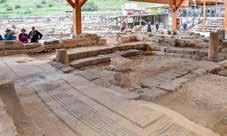

Mary Magdalene, who was apparently from here, may have attended one of these. Jesus like -
inscription in Israel are dated to around 1400 B.C.—confirming the early dating for the Exodus and Conquest laid out in the Bible. Learn more about these finds in “More Proof of the Bible: Mount Ebal Discoveries” in the May-June 2023 issue of Beyond Today.
1,800-year-old proselyte inscription in Galilee (June 1, 2022). A grave marker in the Beth Shean cemetery, inscribed in Greek with a curse against opening, names the person buried as Iokobos (or Jacob) the proselyte (or convert). The Greek term literally denoting one who has “come over” is used several times in the New Testament of full converts to Judaism, in contrast to the also-mentioned “God-fearers” who followed some Jewish rules but were not circumcised.
ly preached here: “Jesus went about all the cities and villages, teaching in their synagogues . . .” (Matthew 9:35). Some scholars have argued that synagogues were a feature of later Judaism and not of Jewish religion in the first century, as the New Testament describes. But as the co-director of the dig here stated, “The more we study this time, the more we realize that synagogues were very common.”
City gate and site of ancient tabernacle identified at Shiloh (Aug. 13, 2022). Shiloh was the site of the Israelite tabernacle housing the Ark of the Covenant from the time of Joshua until long afterward. Archaeologists have discovered piers that evidently formed a door into a gate complex on the north side of the biblical city, with a gap here in an embankment wall around the city fortifications, fitting with access to the nearby spring on that side.
tury A.D., with an iron nail in his right heel bone, was found among the remains of 48 bodies in a 2017 excavation in Fenstanton, Cambridgeshire, now published. This is the first skeletal evidence of crucifixion in northern Europe and the fourth reported worldwide, two found with imbedded nails and two with holes where nails had been. Both this and the famous 1968 find in Jerusalem show nailing of the heel from the side— instead of through the top of the feet as often depicted in iconography of Jesus. Many take this to mean the legs of those crucified were nailed straddling the upright post rather than together in front. It should be noted that the first prophecy of the Messiah in Genesis 3:15 stated that Satan the serpent would bruise or strike His heel.
Curse inscription with the divine name YHW found at Mt. Ebal altar (Jan. 31, 2022). Just after identifying an altar under a later one at Mt. Ebal as the Israelite altar at the time of Joshua, as described in Deuteronomy 27 and Joshua 8 (where the Bible says curses for disobeying God were proclaimed), a curse tablet was found here bearing the name YHW, a short form of God’s name YHWH or Yahweh.
The altar and this oldest proto-alphabetic
Excavation director Scott Stripling thinks this is probably the gate where Eli, the Israelite priest and judge, fell backward off his chair and died when he received news that the ark, which had been taken out to battle, was captured by the Philistines (1 Samuel 4:18).
Also, lining the perimeter of the northern walls were unique storage rooms strategically positioned next to an earlier found monumental building that dimensionally fits as a platform for the tabernacle, with rare altar “horns” on stone blocks also found here. Close by is a deposit of pottery and bones of only kosher animals dated to around 1400 to 1300 B.C., fitting the biblical time frame, with the majority of the bones from the right side, the right thigh of sacrificed animals being the priests’ portion (Leviticus 7:32-33).
“All of this together inductively suggests to us that we are seeing what is found in the Bible,” Dr. Stripling stated. “There are many lines of evidence and from it an overarching picture emerges.”
Watch for reports of more eye-opening discoveries relating to the Bible in an upcoming issue of Beyond Today.
Can we believe the Bible? Dozens of individuals mentioned in Scripture have been confirmed from history and archaeology—living in the same time frame and locations in which they are found in the pages of the Bible. These finds are powerful witness to the accuracy and historicity of God’s Word.
by Scott AshleyOn virtually every page of the Bible you will find the name of a person or place.
Since the Bible claims to be real history, its credibility rests on its historical accuracy. If the people, places and events mentioned in the Bible are part of factual accounts, we should expect to find evidence to support those accounts. So what does the evidence show? Do archaeology and history confirm the Bible, or do they disprove it?

As archaeologists have excavated the ancient lands of the Bible, they have uncovered inscriptions, coins, statues and other evidence that prove the existence of dozens of persons mentioned in the Bible. Historians poring over ancient records have found still more.
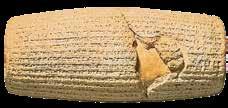
Among biblical figures whose existence has been attested by archaeology or other preserved ancient records are the following:
Addrammelech, prince of Assyria (Isaiah 37:38; 2 Kings 19:37)
Ahab, king of Israel (1 Kings 16-22; 2 Chronicles 18)
Ahaz (Jehoahaz), king of Judah (2 Kings 16; 2 Chronicles 28; Isaiah 1:1; Hosea 1:1; Micah 1:1)
Artaxerxes I, king of Persia (Ezra 4; 7; Nehemiah 2:1; 5:14; 13:6)
Ashurbanipal (Osnapper), king of Assyria (Ezra 4:10)
Azaliah, scribe (2 Kings 22:3; 2 Chronicles 34:8)
Azariah, grandfather of Ezra (Ezra 7:1)
Baruch, scribe of the prophet Jeremiah (Jeremiah 32; 36; 43; 45)
Balaam, Moabite prophet (Numbers 22; 23; 24; 31)
Belshazzar, coruler of Babylon (Daniel 5; 7:1; 8:1)
Benhadad II (Hadadezer), king of Aram (1 Kings 20; 22; 2 Kings 12)
Benhadad III, king of Aram (2 Kings 13:3, 24-25)
Cyrus II, king of Persia (Isaiah 44:28; 45:1; Daniel 1:21; 6:28; 10:1; Ezra 1:1-8; 4:3-5; 5:13-17; 6:3, 14)
Darius I, king of Persia (Haggai 1:1; Ezra 4:24; 5:5-7; 6:1, 12-15)
David, king of Israel (1 Samuel 16-30; 2 Samuel 1-24; 1 Kings 1-2; 1 Chronicles 11-29)
Esarhaddon, king of Assyria (Isaiah 37:38; Ezra 4:2; 2 Kings 19:37)
Evil-merodach (Amel-Marduk), king of Babylon (2 Kings 25:27;
2:19; 6:1-2, 6)
Hazael, king of Aram (1 Kings 19:15, 17; 2 Kings 8:8-9, 12-13; Amos 1:4)
Hezekiah, king of Judah (2 Kings 18-20; 2 Chronicles 29-32)
Hilkiah, high priest (2 Kings 22:414; 23:4, 24; 2 Chronicles 34:9, 14-22; 35:8)
Hophra (Apries), pharaoh of Egypt (Jeremiah 44:30)
Hoshea, king of Israel (2 Kings 15:30; 17:1-6; 18:1, 9-10)
Jehoash (Joash), king of Israel (2 Kings 13:10-13; 2 Chronicles 25:1718, 21-24)
Jehoiachin (Jeconiah), king of Judah (2 Kings 24:8-15; 25:27-30; Jeremiah 52:31-34)
Jehu, king of Israel (1 Kings 19:1617; 2 Kings 9-10; 2 Chronicles 22:8-9; Hosea 1:4)
Jehucal (Jucal), court official (Jeremiah 37:3; 38:1)
Jerahmeel, prince of Judah (Jeremiah 36:26)
Jezebel, wife of King Ahab of Israel (1 Kings 16:31; 18:4, 13; 19:1-2; 21:5-25; 2 Kings 9:7-37)
Johanan, grandson of the high priest Eliashib (Nehemiah 12:22-23)
Josiah, king of Judah (2 Kings 21:24, 26; 22:1, 3; 23:1, 16-34)
Jeremiah 52:31)
Gedaliah, governor of Judah (2 Kings 25:22-25; Jeremiah 40:5–41:18)
Gemariah, scribe (Jeremiah 36:1012, 25)
Geshem, Arab dignitary (Nehemiah
Jotham, king of Judah (2 Kings 15; 2 Chronicles 27:1-9; Hosea 1:1; Micah 1:1; Isaiah 1:1)
Manasseh, king of Judah (2 Kings 21; 2 Chronicles 33:1-20; Jeremiah 15:4)
Menahem, king of Israel (2 Kings
15:14-23)
Merodach-baladan, king of Babylon (Isaiah 39:1)

Mesha, king of Moab (2 Kings 3:4)
Sargon II, king of Assyria (Isaiah 20:1)
Sennacherib, king of Assyria


(2 Kings 18:13, 17; 19:16, 20, 36;
2 Chronicles 32:1-2, 9-10, 22; Isaiah 36:1; 37:17, 21, 37)
Seraiah, court official of Zedekiah (Ezra 2:2; 7:1)
Shalmaneser III, king of Assyria (Hosea 10:14)
Shalmaneser V, king of Assyria (2 Kings 17:3; 18:9)
Shaphan, father of Gemariah the scribe (Jeremiah 36:10-12)
Sharezer, son of Sennacherib (2 Kings 19:37; Isaiah 37:38)
Shebna, royal steward of Hezekiah (Isaiah 22:15)
Shelemiah, father of Jehucal (Jucal) (Jeremiah 37:3)
1 Chronicles 5:6, 26)
Meshullam, father of Azaliah the scribe (2 Kings 22:3)
Shishak, pharaoh of Egypt (1 Kings 11:40; 14:25; 2 Chronicles 12:2-9)
Tirhakah, pharaoh of Egypt and
Uzziah (Azariah), king of Judah (2 Kings 15:13, 30-34; 2 Chronicles 26:1-23)
Xerxes I (Ahasuerus), king of Persia (mentioned often in the book of Esther)
Zedekiah, king of Judah (2 Kings 24:17-20; 25:2, 7)
New Testament
Nebo-Sarsechim, Babylonian official (Jeremiah 39:3)

Nebuchadnezzar II, king of Babylon (2 Kings 24:1, 10-11; 25:1, 8, 22; 2 Chronicles 36:6-13; many mentions in the books of Jeremiah and Daniel)
Necho II, pharaoh of Egypt (2 Kings 23:29, 33-35; 2 Chronicles 35:20-22; Jeremiah 36:4)
Nergal-sharezer, prince of Babylon (Jeremiah 39:3, 13)
Neriah, father of Baruch the scribe (Jeremiah 32:12, 16; 36:4, 8, 14, 32; 43:3, 6; 45:1; 51:59)
Omri, king of Israel (1 Kings
16:16-17, 21-29; Micah 6:16)
Pekah, king of Israel (2 Kings
15:25-31, 37; 16:1, 5; 2 Chronicles
28:6; Isaiah 7:1)
Rezin, king of Aram (2 Kings
15:37; 16:5-6, 9; Isaiah 7:1, 4, 8)
Sanballat, governor of Samaria
(Nehemiah 2:10, 19; 4:1, 7; 6:1-2, 5, 12, 14; 13:28)
king of Ethiopia (Isaiah 37:9; 2 Kings 19:9)
Tattenai, governor of Eber-Nari
(Ezra 5:3, 6; 6:6, 13)
Tiglath-Pileser III (Pul), king of Assyria (2 Kings 15:19, 29; 16:7, 10;
Annas, high priest (Luke 3:2; John 18:13, 24; Acts 4:6)
Aretas IV, king of Nabataea (2 Corinthians 11:32)
Augustus Caesar, emperor of Rome (Luke 2:1)
Caiaphas, high priest (Matthew 26:3, 57; Luke 3:2; John 11:49; 18:1314, 24, 28; Acts 4:6)
Claudius Caesar, emperor of Rome (Acts 11:28; 18:2)
Erastus, public official in Corinth (Acts 19:22; Romans 16:23; 2 Timothy 4:20)
Gallio, proconsul of Achaia (Acts 18:12-17)
Herod the Great, king of Judea (Matthew 2:1, 3, 7, 12-22)
Herod Antipas, tetrarch of Galilee and Perea (Matthew 14:1-6)
Herod Agrippa I, king of Judea (Acts 12:1, 19)
Herod Agrippa II, last ruler of the Herodian dynasty (Acts 25:13,
Frequently as archaeologists have excavated the lands of the Bible, the evidence uncovered has verified the Bible as an authentic, accurate record.Photos, from left: Trustees of the British Museum, Oren Rozen, Scott Ashley
23; 26:1-2, 19, 27-32)
Herod Archelaus, ethnarch of Judea, Samaria and Edom (Matthew 2:22)
Herodias, wife of Herod Antipas (Matthew 14:3-6; Mark 6:17-22; Luke 3:19)
James, half brother of Jesus (Mark
Quirinius (Cyrenius), governor of Syria (Luke 2:2)
Salome, daughter of Herodias (Matthew 14:6; Mark 6:22)
Sergius Paulus, proconsul of Cyprus (Acts 13:7)
Simon Peter, apostle (mentioned throughout the Gospels)
Tiberius Caesar, emperor of Rome (Luke 3:1)
Can these be explained away?
The list of confirmed biblical figures is detailed and extensive. Bible critics face a major difficulty in trying to explain away the Bible’s many mentions of seemingly insignificant names. At times entire lists that aren’t functional to the narrative are inserted here and there.
Bible. But archaeology has verified not just the existence of dozens of people mentioned in Scripture, but hundreds of details such as cities, towns and even specific structures mentioned in the Bible such as palaces, pools and city gates. Again and again as archaeologists have excavated the lands of the Bible, the evidence they’ve uncovered has verified that the Bible is a truly authentic and accurate ancient record.

As the great archaeologist William F. Albright wrote, “There can be no doubt that archaeology has confirmed the substantial historicity of Old Testament tradition” (Archaeology and the Religions of Israel, 1969, p. 169).
6:3; Matthew 13:55; Galatians 1:19; James 1:1)
Jesus Christ (mentioned throughout the New Testament writings)
John the Baptist (mentioned often in the four Gospels)
Matthew (Levi), apostle (Mark 2:14; Luke 5:27-29; 6:15; Acts 1:13)
Nero Caesar, emperor of Rome (Acts 25:8-12)
Philip, apostle (Matthew 10:3; Mark 3:18; Luke 6:14; John 1:43-48; 12:21; 6:5-7; 12:21-22; 14:8-9; Acts 1:13)
Philip (Herod Philip II), tetrarch of Iturea and Trachonitis (Luke 3:1)
Pontius Pilate, procurator of Judea (Matthew 27; Mark 15; Luke 23; John 18; 19)
Some critics have argued that the biblical books were written much later and that such names were added to make the accounts merely appear authentic. Others have suggested that people important to stories of later times were surreptitiously inserted into earlier accounts or that the inserted names serve a poetic function.
How, then, can they explain biblical figures whose existence has now been proven by archaeological finds placing them in the exact times and locations in which they are described in the Bible? And, as seen from this list, this has happened dozens and dozens of times with persons ranging from kings to court officials to commoners!
There are limits, of course, to what archaeology can confirm about the
He also stated: “The excessive skepticism shown toward the Bible by important historical schools of the eighteenth and nineteenth centuries has been progressively discredited. Discovery after discovery has established the accuracy of innumerable details, and has brought increased recognition to the value of the Bible as a source of history” (The Archaeology of Palestine, 1960, pp. 127-128).
If you’d like to learn more about archaeological, historical and scientific evidence that confirms the accuracy of the Bible, download or request your free study guide Is the Bible True? from which this article is adapted.


BTmagazine.org/booklets
We never charge our readers for Beyond Today magazine or any of our literature. It has always been and will continue to be provided free of charge to any who ask. Your subscription has been paid for by those who want to share these words of hope and understanding.

You can make a donation on our website at donate.ucg.org or contact our office nearest you on page 31. Contributions are tax deductible where permissible by law.
With your support we are able to reach many people with the life-changing truth of God’s Word!
In our roles as parents, nothing could be more important than leading our children into a loving relationship with God. But how can we do that? Here are some practical steps to guide the process.
by Joy JonesAs parents, we long for our children to follow God. But the process of getting them to the place where God is real to them and not just a figure in a story can feel incredibly daunting.
How do we make God real to our children—to help them know Him? Many parents wonder, “Where do I even begin to start?”
Vocal lessons
We can begin with helping our children learn to recognize their Father’s voice.
Throughout the pregnancy with our first child, Sarah, my husband would talk to her. He would place his hands on my stomach, get down on his knees, and say something like: “Sarah, it’s Daddy. Can you hear me? I love you.” Sometimes he would sing songs to her, and other times he would just share his day with her. He loved to try to make me laugh by tapping on my belly and saying, “Hello, hello, hello—is anybody in there? Please knock if you can hear me!”
What’s amazing is that each time he did this, she responded. She would begin kicking with her feet into my ribs as a sign that she had heard her father’s voice.
The night Sarah was born, nothing went as expected. The idyllic birth experience I planned for turned into a long blur of pain. Then, after more than 18 hours into labor, in the midst of the final push, I vomited and was unable to immediately hold my new baby. Instead, while a nurse tried to care for me, another nurse took Sarah to get her cleaned up and weigh her. My tiny baby was in a stranger’s arms, hearing a stranger’s voice talking to her and trying to soothe her, but she only cried and cried. She did not recognize the stranger’s voice.
My husband, who had gone silent as he watched his daughter’s birth, stood there next to her overwhelmed. Our newborn daughter’s tiny fist held tightly to his finger, but she had yet to hear him speak. The nurse encouraged him to talk to her. In almost a whisper he said: “Hello, Sarah. It’s me, Daddy.”
It is a moment that my husband and I will never forget. Sarah stopped mid-cry and turned towards her
father’s voice. She searched for his face; she searched for his voice. The nurse turned to my husband and said: “Someone has been talking to their baby. She knows her father’s voice.”
Fast forward 17 years. Each of our three children knows their father’s voice.
They have never been fooled by someone pretending to be their dad because they know the absolute authenticity of their own father’s voice. It is distinctive. They have heard it from the womb, and it has been carried with them into their young lives. My children have no trouble recognizing their dad, believing in their dad, or trusting their dad to take care of them. He has shown them, time and time again, evidence of his faithfulness.
But how does the story of my daughter’s birth, or my children knowing the sound of their dad’s voice, have anything to do with helping to make God real?
Simple.
All children have to be taught to recognize the voice of their Father—their Father in heaven. They have to be taught to know it, to trust it, to discern it, and to not be fooled into following the voice of an imposter. Simple, yet still daunting. As parents, it may well be the most important work of our lives.
In what follows, I would like to share how you can help your children see God as real, living and as an integral part of their lives.
When Sarah was in utero, both David and I talked with her all the time. We would talk with her, sing to her, tell her how excited we were to meet her. Throughout these months, we grew to know her through her movements. She grew to know us through the sounds of our voices. When she was born, we already had a fledgling relationship.
She could not yet understand what we were saying, but she knew that she was loved. The foundation of a lasting relationship had already been laid.
Teaching our children to recognize the voice of their Heavenly Father is much the same. Before they can even
talk or walk or crawl, we begin sharing the voice of their Heavenly Father with them. We do this by instilling God’s Word into our children from their infancy.
In Deuteronomy 6:4-9 we read that ancient Israel was told the following: “Listen, Israel: The Lord our God, the Lord is one. Love the Lord your God with all your heart, with all your soul, and with all your strength. These words that I am giving you today are to be in your heart. Repeat them to your children. Talk about them when you sit in your house and when you walk along the road, when you lie down and when you get up. Bind them as a sign on your hand and let them be a symbol on your forehead. Write them on the doorposts of your house and on your city gates” (Christian Standard Bible, emphasis added).
Here we see the original multidisciplinary learning style of teaching—those in ancient Israel were to imprint the Word of God on their children’s hearts and minds. Rather than just a lecture series on keeping the commandments of God, this admonition was given to parents as a methodology for effective teaching. Their children were to hear, see, touch and feel the Word of God all around them every day.
The message to the physical nation of Israel in Deuteronomy 6 is a message of timelessness. Its message is every bit as relevant to God’s spiritual nation of Israel today. It is relevant to you and me. God’s Word is to be our everything. And our job as parents, even if we feel overwhelmed by it, is to help our children learn to love the Word of God and imprint it onto their own hearts so that it can become their everything too.
Psalm 119:105 tells us, “Your word is a lamp for my feet and a light on my path” (CSB). From as far back as I can remember, I have read God’s Word to our children. We’ve had several children’s Bibles. There are things about them I have appreciated, but in the end I keep coming back to the Bible itself.
As I would read to my children from a particular storybook Bible, I would find myself thinking of all that had been left out. In a desire to fill in the blanks, I would grab my personal Bible and begin reading from it.
I would make an effort to use words they would understand at their developmental level, but I almost always found that they liked the stories from the Bible itself better than the stories from the storybook Bible. I might let them hold the storybook Bible and look at the pictures while I would read to them out of mine. It wasn’t always for large chunks of time, but I would share story after story with them.
As the years went by and they grew, we would discuss what we read. We would talk about it, and they would be able to ask me questions. I haven’t always had the
answers, but I do know where to turn to find them.
Reading God’s Word to our children is just one of the ways of helping our children learn to recognize their Father’s voice. It is perhaps the most fundamental level of making Him real in their lives. As the fabric of their earliest memories are laid, we weave His story into their own. Before they realize the alternative of not knowing Him, He is already there.
Through the great stories of the Bible, they begin to get to know God—the great Creator, the Artist, the Redeemer, the Healer, the Sustainer. Through the stories we tell again and again, we teach them about the character of their Heavenly Father.
As adults, when someone asks us, “How do I grow closer to God?” we will often repeat the same advice again and again—prayer and Bible study. It’s good advice. It’s true advice. But it can be ambiguous advice.
First, we point to the Bible. We encourage those asking to spend time reading the Scriptures and getting to know the Word of God. If they like checklists, reading the Word of God can seem like an easy box to check off. But when we get to the box on prayer, those asking will often hesitate to check the box. A look of panic or consternation will come into their faces as they ask: “But what do I say? Where do I start?”
Now, extend this down to teaching our children to pray. As one mom asked recently, “How do you even teach a kid to pray?”
Prayer is nothing more than an ongoing conversation with God. Only it’s a conversation in which the Creator of the universe bends down to listen—to us!
Teaching our children to talk with God as a part of an ongoing conversation that may have pauses and brief rests but never fully stops is another step in making God real to them.
We have done family prayer time with our children since they were toddlers. We began by having them get on their knees at bedtime to say goodnight to God. The

prayers were often short, for little ones have short attention spans, but we would pray alongside them. As they became more verbal, we began guiding them through more developed prayers.
Often we would hear little voices asking, “Daddy, can I pray?” Daddy would give them permission to pray but tell them that he might “finish up” after them. It was a way that we got to hear their prayers, and they got to hear ours.
Hearing your child pray is a gift that has no measure. It is also a gift that comes with countless lessons. Teaching our children how to talk with God and share their highs and their lows with Him, their hopes and their struggles, their blessings and their trials, also
In August of 2020, on a family camping trip to Montana, I noticed that my daughter Grace’s smile looked different. Like many parents, I tried to capture photos of all the important moments during the camping trip. Each time the kids would pose for a picture, I would tell Grace to “smile right.” I thought she was putting her tongue inside her lower lip to be silly. It was the kind of thing she would do.
After getting home, I noticed that her smile still didn’t “look right,” so I asked to look inside her mouth. I saw something I knew shouldn’t be there. Later that afternoon she was at our dentist’s office. Within 24 hours she was having a biopsy. Within a week, we were told that she had an aggressive tumor and would need to have the better part of her lower jaw removed because there wasn’t enough bone to save. We were told that our little girl would need years of reconstructive surgery. She was 10 years old.
teaches us how to pray better. Hearing the sincerity in those young voices can be the best facilitator for our own prayers. Our Heavenly Father wants to hear from us. He wants to hear from our children. As we teach them to recognize His voice, we also want to share their voice with Him.
One thing I want to stress is that there is no one right way to pray. Prayer can happen on our knees, in the shower, on a walk, driving in a car, pulling weeds. Prayer can happen anywhere at any time of day. It can be long and thorough or short and sweet. What we want to make sure of is that we teach our children to build the habit of talking with God throughout their day, every day. We want Him to recognize their voice.
God said he chose Abraham “so that he will direct his children and his family after him to keep the way of the Lord by doing what is right and just” (Genesis 18:19, God’s Word Translation). We have the same responsibility.
As parents we are always pointing out the direction our children need to go. It’s part of our everyday lives. We point to the bed that needs to be made, the clothes that need to be picked up, the food that needs to be eaten, the school work that needs to be completed. Sometimes it may seem that our fingers are constantly pointing outward. So, while we are pointing things out to our children, point them to God.
Point out the amazing things He has done. We can definitely point out His amazing attributes in Scripture, but we should not stop there. Share with your children what God has done in your life. Share how He has answered your prayers. Share how He has been faithful
For a parent, there is nothing that can prepare you for hearing that there is something wrong with your child. We were terrified, yet through it all we tried to point Grace to God and His pattern of faithfulness in our lives, in her life. We retold stories of how God had been with us up to that point and expressed that we knew He would be with us going forward.
The pediatric oncologist working with our family urged us to take Grace to the Mayo Clinic and wrote a letter of medical necessity. We were told that the appointment could be months out, but God opened the doors we could not. Within two weeks, we were at the Mayo Clinic, and Grace was having surgery to remove the tumor from her jaw by a surgeon who was at the top of his field. Her jaw was saved. The tumor was removed. Our little girl was going to be okay.
We all have stories to share with our children, stories of God’s faithfulness in our lives. Share those stories. Point them to God each step of the way. Help them to both hear their Father’s voice and see their Father’s faithfulness.
These are some of the important principles I’ve learned for making God real to my children. We’ll cover more key ways in the second part of this article next time!
The Bible contains many principles for bringing up happy, well-adjusted children who have a relationship with God. We’ve compiled much of its advice in our free study guide Marriage and Family: The Missing Dimension Download or request your copy today!
BTmagazine.org/booklets

Through the Bible stories we tell again and again, we teach them about the character of their Heavenly Father.LEARN
Many finds from science and history have helped to verify the words of the Bible. But is knowledge and evidence all that’s needed for you to know, honor and love God?
As Beyond Today often points out, evidence of design in the natural realm, including the human body, ongoing archaeological discoveries and various other discoveries, all help to demonstrate the Bible’s accuracy. However, are facts and information all that’s needed for us to know, honor and love God, or is there another crucial quality that must be included?
Scripture gives the answer in the following important declaration: “Without faith it is impossible to please God, for he who comes to God must believe that He is, and that He is a rewarder of those who diligently seek Him” (Hebrews 11:6, emphasis added throughout). Therefore, while knowledge and evidence are essential elements in coming to reverence God, people also need to demonstrate genuine faith in Him and His Word, the Bible, to have a deep and fulfilling relationship with Him.
With that in mind, an enormous problem has become obvious in today’s society. Vast numbers of people have no idea what true faith in God really is or why it’s of utmost importance in their lives. As Jesus Christ, during His earthly ministry, poignantly commented about His future second coming, “When the Son of Man comes, will He really find faith on the earth?” (Luke 18:8).
Christ’s prophecy, which refers to
by John LaBissonierethe very period the world is nearing today, specifies that there would be an enormous absence of faith. But why? Could much of the reason be that people have placed their faith in science and technology rather than in the Eternal God and His revealed message to humanity?
A vital question to ask is, just what is genuine faith? Hebrews 11:1 explains that “faith shows the reality of what we hope for; it is the evidence of things we cannot see” (New Living Translation). In other words, divine faith is the proof or verification of what a person does not yet have. Faith precedes the actual receiving of what God promises in the Bible. Moreover, faith confirms that what God says in His Word is true. Indeed, it is about accepting in full assurance that He will act in accordance with what He’s stated in Scripture.
Therefore, real faith, which is complete trust and confidence in God, is an indispensable spiritual quality that all people need in order to please Him. In this context, the apostle Paul described the example of faith demonstrated by the ancient patriarch Abraham: “He did not waver at the promise of God through unbelief, but was strengthened in
faith, giving glory to God, and being fully convinced that what He had promised He was also able to perform” (Romans 4:20-21).
What more can be ascertained about faith? It’s not what we take in through the physical senses of sight, sound, smell, taste and touch. Instead, faith is a spiritual matter. It resides in our minds as part of our thoughts. Yet faith is not an emotional feeling or sentiment but a profound trust in God and His promises as being absolutely dependable (2 Peter 1:4).
Spiritual attributes like faith function on a spiritual level. Relying on faith is not discerned through your physical senses since they simply do not perceive that anything spiritual is happening. Even so, people may say things like, “I have no feeling that I’ll receive an answer to my prayers.” But faith is not dependent on feelings. It’s not about stirring up emotions and sensations. Rather, true godly faith is a matter of deep and abiding trust in God and His words in the Bible, where His promises are revealed.
Since God is all-powerful and not subject to physical constraints (Hebrews 11:3), He has limitless ways to assist you, answer your requests and provide whatever He has pledged to do. You don’t have to know how He will accomplish His
promises since He may act in ways you don’t expect (Isaiah 55:8-9).
Your role is to simply ask in humble, believing faith, and God will fulfill His commitments in the manner and the time that is most appropriate. Since God works in mighty and wonderful ways, you can absolutely depend on Him to carry out His obligations (Psalm 78:4). Whatever He has promised, He will fully perform (Psalm 115:3; Isaiah 46:10).
It’s important to comprehend something else about faith. It cannot
yourselves” (James 1:22).
Accordingly, faith means that you not only trust God but do your part in obeying Him (Matthew 12:50;
1 John 2:3-4). As James 2:14 says: “What does it profit, my brethren, if someone says he has faith but does not have works? Can faith save him?” It’s further stated in verse 20 that “faith without works is dead.” As a consequence, faith must be demonstrated by action.
If you yearn to build a strong and flourishing relationship with your Creator, you must continually flee sin and unrighteousness by being
tently grow and be nurtured (2 Corinthians 10:15). The apostle Paul wrote, “We are bound to thank God always for you, brethren, as it is fitting, because your faith grows exceedingly” (2 Thessalonians 1:3).
Moreover, the apostle Jude encouraged Christians to continue “building yourselves up on your most holy faith, praying in the Holy Spirit” (Jude 20). It is paramount that you carefully cultivate and strengthen your faith each day. How? By studying the Bible, applying its lessons and diligently praying for God’s guidance and strength (Romans 10:17; 2 Timothy 2:15; 1 Chronicles 16:11). As Hebrews 10:38 explains, “The person who has God’s approval will live by faith” (God’s Word Translation).
be generated from within yourself. Rather, faith is one of God’s precious divine gifts He bestows on you when you repent of sin, are baptized, accept Jesus Christ as your personal Savior and receive God’s Holy Spirit (Ephesians 2:8; Romans 12:3; Acts 2:38). Since faith is God’s exceptional gift, you have no need to strain and struggle to obtain it. God generously gives each repentant, trusting individual a measure of the very faith of Christ (Revelation 14:12; Galatians 3:26).
Touching on another key point, while it is impossible to obtain spiritual salvation by your works, as Scripture clearly explains (Ephesians 2:8-9), you still have an obligation to demonstrate your love and respect for God by obeying His commandments. Consider that Jesus Christ
“became the author of eternal salvation to all who obey Him” (Hebrews 5:9). And Jesus Himself said, “Not everyone who says to Me, ‘Lord, Lord,’ shall enter the kingdom of heaven, but he who does the will of My Father in heaven” (Matthew 7:21). Likewise, the apostle James stated, “But be doers of the word, and not hearers only, deceiving
actively engaged in fighting “the good fight of faith” (1 Timothy 6:1112). This means that when you are pressured by temptations, wrong desires or actions, you continue forging ahead in virtuous behavior. It results in you remaining completely faithful to God and His ways under any circumstances (Hebrews 12:4;
1 Timothy 6:11).
When you, by faith, tenaciously resist enticements to yield to sinful conduct, what will be the awesome outcome you can ultimately expect?
“Your faith will be like gold that has been tested in a fire. And these trials will prove that your faith is worth much more than gold that can be destroyed. They will show that you will be given praise and honor and glory when Jesus Christ returns”
(1 Peter 1:7, Contemporary English Version).
Furthermore, it is important to grasp that faith can weaken and wither away if it is not cherished and employed continually (1 Timothy 6:10). Faith cannot remain static or motionless. Rather, it must consis-

Finally, while facts and information about God and the Bible are extremely important, if you deeply desire to know, honor and love the Eternal God, you also need the indispensable spiritual quality of faith. If you employ it fully, Jesus Christ at His second coming will count you among the esteemed, righteous persons who will join Him in God’s glorious Kingdom and family. May you choose to live by faith!
If you would like assistance on your spiritual journey, we welcome you to contact us. We have hundreds of ministers around the world who are available to answer your questions and offer spiritual guidance. We look forward to hearing from you!
LEARN MORE
Faith is vital to approaching God, accepting Christ, learning to walk in His ways and receiving salvation in God’s Kingdom. To learn much more about this indispensable quality and how to develop it, download or request our free study guide You Can Have Living Faith.
BTmagazine.org/booklets
If you yearn to build a strong relationship with your Creator, you must continually flee sin and be actively engaged in “the good fight of faith.”
As the U.S. economy stumbles under painful inflation and government overspending, new international alliances threaten the dollar’s dominance—with eventual dire consequences for America.
The terrorist attacks of Sept. 11, 2001, were the deadliest in the nation’s history, destroying lives and damaging the economy. Yet under the radar of most, another long-term threat to American power was emerging.
The New York Stock Exchange experienced its largest one-day drop to that point, worsening a recession already hurting the country. With the U.S. dollar (USD) being an international reserve currency in an increasingly globalized economy, the whole world felt the pain. Against this backdrop, the emerging economic might of several large and rapidly expanding economies was noticed, as highlighted in a Goldman Sachs thesis titled, “Building Better Global Economic BRICs,” the name referring to Brazil, Russia, India and China.
Over time, the BRIC nations realized they were stronger together than separate. A Euronews article at the time of their first group summit reported that they were calling for “a more ‘diversified, stable, and predictable’ international monetary system,” with Russia taking aim at the USD’s reserve currency status (“BRIC Wants More Influence,” June 16, 2009). The BRIC countries then accounted for 15 percent of the global economy, double that of a decade before.
The next year South Africa joined the group, which became known as BRICS. In 2012, the group agreed to create its own organization as an alternative to the U.S.-dominated International Monetary Fund (IMF)
by James Ginnand the World Bank.
Fast forward to today, and the seriousness of the situation for America and the vaunted dollar from which it derives its power is coming into focus. Countries around the world, especially those that have been under the thumb of U.S. economic sanctions, could start flocking to BRICS, with more than a dozen nations vying to join the bloc.
According to one estimate, the BRICS expansion under consideration “would create an entity with a GDP 30% larger than the United States, over 50% of the global population and in control of 60% of global gas reserves” (“The New Candidate Countries for BRICS Expansion,” Silk Road Briefing, Nov. 9, 2022).
This is a harbinger of trouble ahead for the dollar, ultimately foreboding significant problems for the United States. BRICS nations are presently working on a new form of currency according to Russia’s State Duma Deputy Chairman Alexander Babakov. Such a currency could be backed by—or perhaps more likely pegged to the value of—gold, rareearth elements, or other groups of products, with a single BRICS currency not being out of the question (“BRICS Working on a New Form of Currency—State Duma Deputy Chairman,” Sputnik, March 30, 2023).
The World Gold Council reported that central banks are accumulating
gold “at the fastest pace on record in the first two months of 2023” (“Central Banks’ Gold-Buying Spree: Implications for the Global Economy and Investors,” Forbes, April 10, 2023). The largest purchasers include Russia, China and India, with Singapore leading the way.
Furthermore, “for the first time ever, BRICS countries’ share of the global economy has surpassed that of the G7 nations (Canada, France, Germany, Italy, Japan, the United Kingdom and the United States), on a purchasing parity basis (ibid.). In simple terms, purchasing power parity (PPP) is a measure that arrives at a theoretical exchange rate at which the same amount of goods and services can be purchased across countries. Economists adjust Gross Domestic Product (GDP) using PPP when comparing the economic strength of economies to one another.
“While the share of GDP of G7 nations based on PPP, reduced from 50.42% of the World’s GDP in 1982 to 30.39% in 2022, the share of GDP of BRICS nations increased from 10.66% in 1982 to 31.59% in 2022” (“How BRICS Countries Have Overtaken the G7 in GDP Based on PPPs,” The Times of India, April 9, 2023).
Yet a pooled alternative reserve currency among these would for now still represent a relatively small percentage of international commerce, as compared with the dollar.
Despite their growth, the BRICS
nations face their own significant economic problems. And some have been in a “dollar trap” until now. Since most of the world’s international trade occurs in USD, a dollar trap forces a country’s central bank to hold massive amounts of U.S. debt instruments to keep their own currency from rising too high in comparison to the dollar (bad for exports) or falling too low (bad for imports).
A new BRICS international reserve currency, backed by a precious metal standard, could offer an escape from the dollar trap while simultaneously replacing it atop the world stage.
For example, as of March, China held over $3.1 trillion in its foreign exchange reserves to keep its currency the renminbi (RMB), denominated in yuan, pegged against the dollar and keep its export engine running. To increase or decrease the value of the RMB in international markets, China must buy and sell large quantities of USD on the foreign exchange (FOREX) markets. As a result, China cannot flood the market with the dollars it holds without hurting itself.
Through maintaining such a large quantity of USD in its central bank, it bolsters the international strength of the dollar and helps maintain a world dependency for USD. Further, so
long as the RMB is pegged, it is indexed to the dollar and still uses a dollar swap to convert it to the currency needed. This is the dollar trap in essence.
But what if BRICS could successfully provide an alternative international reserve currency as suggested by
This came after China’s President Xi Jinping called for making “full use” of the exchange for international oil and gas trades. Along with that call came a message of “noninterference” in the domestic affairs of nations using the RMB, sharply contrasting the willingness of the United States to sanction countries which operate domestic policies it does not support (“China’s XI Calls for Oil Trade in Yuan at Gulf Summit in Riyadh,” Reuters, Dec. 10, 2022).
Babakov? In such case, the huge sums of U.S. debt instruments held by central banks (the Federal Reserve estimating in 2017 that as much as 70 percent of all dollars were held outside the United States) would no longer be needed, at least not in such enormous quantities.
If countries no longer need to stockpile U.S. dollars to keep trade going, how would America pay its vast debt, which has already outstripped its own ability to finance? With U.S. dollars flooding the foreign exchange markets, the dollar could experience an unprecedented loss in value. Sky-high inflation would follow, along with a destabilizing default by the U.S. government. Costs of everything would skyrocket.

With BRICS beginning to outpace the G7 in terms of purchasing power parity/adjusted global GDP, more and more countries will want to do business the BRICS way. Already, France has used RMB to bypass the dollar when it bought liquified natural gas from the UAE through the Shanghai Petroleum and Natural Gas Exchange (“China Completes First Yuan-Settled LNG trade,” Reuters, March 29, 2023).
This has caught the attention of Iran and Saudi Arabia. Enticed by Beijing and the BRICS potential, the adversarial countries restored diplomatic relations with each other, emboldening China to further expand its global influence by offering to broker peace between Israel and the Palestinians next (“China Ready to Broker Israel-Palestine Peace Talks, Says Foreign Minister,” The Guardian, April 17, 2023). BRICS nations are beginning to feel comfortable taking the lead on the world stage.
What does this mean for the United States? While the demise of the dollar does not seem to be imminent, catastrophic world events could push more and more nations to leave the dollar for an alternative. And now that pathway is being opened. Such catastrophic events are prophesied to happen.
Echoing an episode involving ancient King Belshazzar whose great kingdom fell suddenly while toasting to its own greatness, the writing is on the wall, and right now it’s a wall made of BRICS. To paraphrase the warning that prompted Paul Revere’s famous ride: Sound the alarm—the BRICS are coming!
Whatever comes of this effort, it signals grave danger to the U.S. economy. The Bible has long foretold a time when the United States will lose its economic and military dominance in a reordering of the world. Economic factors are now lining up to pave the way for that outcome.
If countries no longer need to stockpile U.S. dollars, how would America pay its vast debt, which has already outstripped its own ability to finance?
The U.S. Surgeon General, Dr. Vivek Murthy, recently issued an advisory about the harmful effects of social media use among children and teens, including depression, anxiety and sleep problems. He said there’s not enough evidence to show social media use is safe, and that in fact there’s growing evidence that it negatively impacts mental health.

As he noted in his statement: “Children are exposed to harmful content on social media, ranging from violent and sexual content, to bullying and harassment. And for too many children, social media use is compromising their sleep and valuable in-person time with family and friends” (May 23, 2023). This comes after a recent study found that 95 percent of teens use social media, with the average teen spending two hours a day on it.
Indeed, the trend of increasing mental health problems has been worst among teen girls, with the Covid lockdowns exacerbating matters. The results of the Youth Risk Behavior Survey, published by the Centers for Disease Control and Prevention this April, showed a marked rise among female high school students contemplating
suicide (“One-Third of Teen Girls in US Seriously Considered Attempting Suicide in 2021: CDC,” ABC News, April 27, 2023).

around the world. (“The Teen Mental Illness Epidemic Is International, Part 1: The Anglosphere,” JonathanHaidt.substack.com, March 29, 2023).
The analysis concludes: “At this point, there is only one theory we know of that can explain why the same thing happened to girls in so many countries at the same time: the rapid global movement from flip phones (where you can’t do social media) to smartphones and the phonebased childhood. The first smartphone with a front-facing camera (the iPhone 4) came out in 2010 . . . Facebook bought Instagram in 2012 . . . So 2012 was the first year that very large numbers of girls in the developed world were spending hours each day posting photos of themselves and scrolling through hundreds of carefully edited photos of other girls.
But the problem was already there—the number being nearly a quarter in 2019. As one analysis notes, “It is now widely accepted that an epidemic of mental illness began among American teens in the early 2010s”—and it goes on to show that the same kind of results show up
ARasmussen poll conducted May 16-18, 2023, found that 59 percent of likely voters in the United States either strongly agree or somewhat agree with stating that the media is “truly the enemy of the people.”
The figure is higher for Republicans at 77 percent. But nearly half of Democrats also agree, with a recent 11 point drop in trust among them.
Overall, 52 percent of Americans say they don’t trust the political news coming from the mainstream establishment media, and 52 percent believe the media is biased towards Democrats—with very few believing it leans Republican (even among Democrats and Independents).
When digesting news from any source, it’s important to realize that specific agendas are often at work in guiding and controlling the narratives presented in news coverage and analysis. And those narratives and presentations are typically overwhelmingly biased against godly and biblical perspectives. We must always be careful what we allow into our minds.
“If you suddenly transform the social lives of girls, putting them onto platforms that prioritize social comparison and performance, platforms where we know that heavy users are three times more likely to be depressed than light users, might that have some impact on the mental health of girls around the world? We think so.”
Not quite 50 percent of Americans now say they have no doubt of God’s existence—this according to a 2022 survey, the results of which were released this May. The figure is down from 60 percent in 2008.
The same survey, the General Social Survey by the National Opinion Research Center (NORC), also found that 34 percent of Americans now never go to church—the highest rate of nonparticipation in five decades.

Another report from the Public Religion Research Institute (PRRI) revealed that 27 percent of Americans claimed no religion in 2022, up from 19 percent in 2012 and 16 percent in 2006. Still, nearly three quarters believe in life after death (“Does God Exist? Only Half of Americans Say a Definite Yes,” The Hill, May 22, 2023).
Sadly, the nation and the world at large are becoming increasingly confused about God and His truth revealed in the Bible. Yet, as shown in several articles in this issue, evidence for the existence of God and the Bible as His inspired Word is abundant to those willing to see.
Rates of sexually transmitted infections (STIs), particularly syphilis, have been going up in the United States over the past few years.
As LiveScience reports: “The U.S. Centers for Disease Control and Prevention (CDC) tracks the national rate of gonorrhea, chlamydia and syphilis infections. Rates of these bacterial STIs were already rising in the six years preceding the pandemic. Over this period, gonorrhea rates increased by an average of roughly 10% each year, chlamydia rates increased by an average 3.6% annually and syphilis rates increased by an average 14% annually . . .
“Syphilis case rates surged more sharply in the same time period, to their highest rate in three decades—a 27% uptick compared to 2020 . . . Soaring syphilis infections are particularly concerning as they are tied to rising rates of congenital syphilis [that is, being passed on to babies in the womb, causing birth defects and other serious problems, including death] . . . Congenital syphilis infection rates roughly tripled from 2017 to 2021” (“Why Are Sexually Transmitted Infections on the Rise in the US?” March 15, 2023).
The U.S. state of Mississippi saw a shocking jump in congenital syphilis cases between 2016 and 2021 (“Mississippi Hit by 900% Increase in Newborns Treated for Syphilis,” NBC News, Feb. 13, 2023).
Furthermore, “the US and UK are suffering a throat cancer ‘epidemic’—and experts point to oral sex [or, rather, that outside of monogamy] as the culprit. Dr. Hisham Mehanna, from the UK’s University of Birmingham, said 70 percent of cases of throat cancer are caused by [the sexually transmitted] human papillomavirus (HPV) . . . Dr Mehanna said people with multiple oral sex partners have an up to nine-fold increased risk of throat cancer” (“Oral Sex is Fueling an ‘Epidemic’ of Throat Cancers in the US and UK,”
Daily Mail, April 26, 2023). HPV also causes cervical cancer (ibid.).
Along with all these increases, HIV cases are also on the rise. “And an international outbreak of monkeypox, which is being spread mainly between men who have sex with other men, has further highlighted the nation’s worsening problem with diseases spread mostly through sex. David Harvey, executive director of the National Coalition of STD Directors, called the situation ‘out of control’” (“‘Out of Control’ STD Situation Prompts Call for Changes,” Fox6 Milwaukee, Sept. 19, 2022).
LiveScience says that “one factor many scientists think is behind the rise in STI rates is the growing opioid epidemic. Use of opioids, including prescribed painkillers and illicit drugs such as heroin and fentanyl, reached new heights amid the pandemic and has been linked to risky sexual behavior that raise the risk of STI spread, such as not using a condom and having many sexual partners.”
Drug abuse, a foolish behavior in itself, certainly leads to more foolish behavior. And needle sharing is another way to pass on disease, such as HIV.
But the real problem here is not lack of general health education and reminders about condom usage. The real problem is disobeying God’s commandments about sexuality and reaping the consequences. The apostle Paul speaks in Romans 1:27 of those engaged in sexual immorality “committing what is shameful, and receiving in themselves the penalty of their error which was due.”
Society is under curses for its sins. But people can and must repent—and God will also heal. Let’s pray that more people will turn from wickedness and embrace the ways of God. And to better understand the proper context of human sexuality, be sure to read our free study guide Marriage and Family: The Missing Dimension.
So much is happening in the world, and so quickly. Where are today’s dramatic and dangerous trends taking us? What does Bible prophecy reveal about our future? You’re probably very concerned with the direction the world is heading. So are we. That’s one reason we produce the Beyond Today daily TV commentaries—to help you understand the news in the light of Bible prophecy. These eye-opening presentations offer you a perspective so badly needed in our confused world—the perspective of God’s Word. Visit us at ucg.org/beyond-today/daily !
According to a study by the Centers for Disease Control and Prevention (CDC), one in three Americans are not getting enough sleep—defined as seven or more hours a night. In the 1940s the average American adult slept 7.9 hours a night. It’s now 6.8 hours a night and likely not as restful.


Lack of sleep can drastically increase risk for heart disease, strokes and cancer. It’s also been linked to obesity, depression, anxiety, heart failure and dementia. Besides increased health care costs, job performance also suffers, with tiredness leading to lack of focus, missed work and greater chance of injuries on the job (Axios, May 29, 2022).
For good sleep, schedule around your best hours and stay consistent. Maintain a good sleep environment with low light and noise. Get sun and exercise for sufficient tiredness to sleep easier. Avoid caffeine at night. Keep naps in the day short. Turn off devices with screens a half-hour before bedtime. Seek solutions to disturbed breathing from allergies or apnea, which can be dangerous. Reduce stress and pray to God for peace of mind. “For so He gives His beloved sleep” (Psalm 127:2; see also Proverbs 3:24).
We should also be careful to avoid the opposite in sleeping too much (Proverbs 19:15; 20:13; 24:33-34). Rather, we must seek the right balance, being productive and getting needed rest—each of these leading to the other.
After years of preaching a strong message of repentance, the prophet Habakkuk became distressed since most people refused to heed His God-given words. Learn what God told him and discover how it applies to people in today’s world.
by John LaBissoniereDoesn’t it seem as if most people have no interest in learning the truth of God—of hearing His teachings and heeding His warnings made plain in Holy Scripture? If you’ve ever thought this way, you’re not alone.
Jesus Christ gave His disciples a critical mission to perform. Having declared that “this gospel of the kingdom will be preached in all the world as a witness to all the nations, and then the end will come” (Matthew 24:14), He told them to “preach the gospel to all creation” (Mark 16:15, New International Version). Furthermore, He called on them to “go therefore and make disciples of all the nations, baptizing them in the name of the Father and of the Son and of the Holy Spirit, teaching them to observe all things that I have commanded you” (Matthew 28:19-20).
Jesus’ early disciples and others who followed them carried out those duties diligently. But it’s always been an uphill task. Now in the 21st century, God’s Church carries out that identical mission amid increasing resistance. Over recent decades sinfulness and irreverence toward God have steadily grown worse. Will His words continue to go unheeded?
As a result, God raised up Habakkuk and other prophets to call the people’s attention to these escalating sins. He warned the country’s leaders and citizens that God simply wouldn’t tolerate such behavior and that, unless change occurred, He would have to punish the nation.
What was the result of Habakkuk’s many years of preaching and warning? Sadly, little if anything since most people refused to heed his God-given words. After experiencing this condition Habakkuk became disheartened and sought to know why God didn’t take immediate action to deal with Judah’s sins.
In prayer he pleaded: “O Lord, how long shall I cry, and You will not hear? Even cry out to You ‘Violence!’ and you will not save. Why do You show me iniquity, and cause me to see trouble? For plundering and violence are before me. There is strife, and contention
About 2,600 years ago, God’s prophet Habakkuk had comparable thoughts and expressed them in a prayer to His Creator by means of a question. Although God answered, Habakkuk didn’t really like what he heard. It left him perplexed. So he boldly asked God another question, and in due course he began to understand.
Habakkuk wrote his prophetic book in Judah probably just after the reign of righteous King Josiah, when his wicked son Jehoiakim was made ruler. The nation had experienced a period of relative material prosperity and was now turning away from God. Although Josiah instituted various spiritual reforms, crime and violence were now on the rise. Moreover, the wicked prospered, widows and orphans were forsaken and lawlessness was becoming pervasive.
arises. Therefore the law is powerless, and justice never goes forth. For the wicked surround the righteous; therefore perverse judgment proceeds” (Habakkuk 1:2-4).
With everything he witnessed and nothing happening to stop it, Habakkuk was distressed. Can we identify with his painful dilemma as we see rapidly increasing violence, perversion and lawlessness in our society? (See Ezekiel 9:4.)
In response to Habakkuk’s prayer, God explained that He was fully aware of Judah’s iniquities and would chasten the nation unless the people repented. If they didn’t, the country would be invaded and conquered, its people removed from the land, by an exceedingly cruel and violent nation—the Chaldeans, also known as the Babylonians (Habakkuk 1:6-9).
for its sins. Later he became distressed in realizing his nation might be destroyed!
After hearing this, Habakkuk was utterly stunned! Just the thought of his people being vanquished by such a despotic, depraved nation completely horrified him! With this knowledge, Habakkuk’s dilemma grew even greater! While at first he wondered if God would even punish Judah at all, it seems he now became distressed that his nation might be entirely wiped out! (compare verse 12, New Living Translation).
Although deeply troubled, this faithful prophet waited patiently for God to provide him with more information (Habakkuk 2:1). Soon God did just that, and He told Habakkuk to write down what he heard so that others could also understand (verse 2).
Continuing in chapter 2, God then told Habakkuk that He certainly knew the Chaldeans were arrogant, idolatrous and ruthless. But He further revealed that in due time, they, too, would be sorely punished and their kingdom entirely demolished. This happened in 539 B.C. when the Chaldeans’ capital city of Babylon was overthrown by forces of the Medo-Persian Empire.
But there’s more to the story since Bible prophecies are often dual in nature. God told Habakkuk: “This vision is for a future time. It describes the end, and it will be fulfilled. If it seems slow in coming, wait patiently, for it will surely take place. It will not be delayed” (verse 3, NLT).
This statement was a vital key to solving Habakkuk’s dilemma. God showed him that what he was doing in warning Judah was not for his time alone. As other biblical prophecies explain, it was also for a future period— “the time of the end” (Daniel 12:4), the period leading up to and including the 3½ years of horrendous world trouble culminating in Jesus Christ’s second coming. But Habakkuk didn’t understand this at first. God had to help him see beyond the limited focus of his own day and time.
Yet can we perhaps understand how Habakkuk felt? He simply wanted his world to be made right and his people brought to repentance then and there! Honestly, isn’t that how we feel at times? Don’t we sometimes wish that our society would not have to undergo the violence and suffering Bible prophecy reveals are coming?
Like Habakkuk, there is no way we would ever really want our nations to be overrun and defeated—with cities, towns and rural areas in flames and with starving, suffering and dying people everywhere. Even though God will indeed protect many of His faithful followers from various aspects of this horrible disaster, it will conceivably affect our own family members, relatives, friends and neighbors.
But sadly, unless repentance occurs, those dreadful punishments will continue speeding toward our nations.
As prophecy reveals, near the end of the age God will permit human leaders, influenced by Satan the devil, to form the most tyrannical and cruel empire to ever rule on earth (2 Thessalonians 2:9; Revelation 13:1-4). Bible prophecy discloses that shortly before Christ’s second coming, this powerful Babylonian-type world governing system will arise in Europe (Revelation 18:3).
Described as a terrible beast (Daniel 7:7; Revelation 13), this great superpower will inflict terrible punishment on the nations of modern-day Israel—meaning the United States, Britain, Canada, Australia, New Zealand and others—due to their flagrant and continual disobedience of God’s commandments (compare Leviticus 26:18, 24, 28; and see our free study guide The United States and Britain in Bible Prophecy).
This devastating period is referred to in Scripture as “Jacob’s trouble” (Jeremiah 30:5-8). Judah’s prophesied ancient fall was a forerunner of what is to come—which Christ said will be the worst time in all of human history (Matthew 24:21). And later, like its ancient Chaldean predecessor, this end-time bestial global power will itself be destroyed (Revelation 18:9-11).
So God’s words to Habakkuk about “the end” apply to the time just ahead of us! What, then, should we do? Besides staying personally close to God, we need to strongly support the Church’s work of preaching the gospel to all nations.
Plus, we can pray that many more people can be reached with God’s message of witness, warning and repentance (Matthew 24:14; Isaiah 58:1). And just as importantly, we can personally emulate Jesus Christ as living examples of the gospel message by our godly behavior—so others may also give glory to God (Matthew 5:14-16).
Finally, through God’s great help, Habakkuk’s dilemma was resolved. Afterward he continued preaching repentance, living justly by faith and giving honor to his Eternal Creator (Habakkuk 2:4; 3:19). He did so knowing God was in complete control and would handle everything in His good time. Therefore, let’s follow Habakkuk’s trusting example by growing spiritually strong, preparing diligently for Jesus Christ’s return and supporting God’s great work throughout the world!
As we survey the world around us, the picture is increasingly bleaker, the signs of the times growing starker. Are the biblical last days upon us? To help make sense of it all, download or request our free study guide Are We Living in the Time of the End?
BTmagazine.org/booklets

To be a true follower of God the Father and Jesus Christ, we must give answer to two pivotal questions of understanding and commitment.
by Robin WebberOur desired goal in Beyond Today articles showing proof of God and the validity of the Bible is to assure those responding to Jesus’ call of “Follow Me” that God has provided down through the ages a certifiable “spiritual GPS” to enable us to be the Master’s disciples, and to offer motivation to travel the route it lays out. But let’s understand something very basic. We can believe God exists and that carefully preserved Scripture is His divine Word, yet at the same time be at a personal spiritual standstill! Why? Because a personal Bible that remains unopened on a daily basis might as well be one more book lost in a dark closet.
Let me ask a personal question of those of you who believe in God and believe that the Bible is His written revelation. When is the last time you opened your Bible and your heart and let God directly speak to you? Just be honest, brutally honest at that, because honesty is where any movement towards God begins. The Bible is full of His answers for you about how to experience a meaningful life, but Jesus Christ would ask each of us two pivotal questions to answer in turn. There is no way around His simple but profound inquiries.
How you answer these two questions goes to the heart of your being a disciple of Jesus Christ or not—presenting measurable evidence as to whether an uncreated Creator has interrupted and intervened in your life and is transforming your life in witness to others. Are you ready? Here are the two great questions of discipleship Jesus would ask you.
We explore the intimate magnitude of the first question by joining Jesus and our fellow disciples standing before the rocky ramparts outside Caesarea Philippi. It’s here the questioning encounter occurs, as recorded in Matthew 16:13-18:
“When Jesus came into the region of Caesarea Philippi, He asked His disciples, saying, ‘Who do men say that I, the Son of Man, am?’ So they said, ‘Some say John the Baptist, some Elijah, and others Jeremiah or
one of the prophets.’ He said to them, ‘But who do you say that I am?’ Simon Peter answered and said, ‘You are the Christ, the Son of the living God.’ Jesus answered and said to him, ‘Blessed are you, Simon Bar-Jonah, for flesh and blood has not revealed this to you, but my Father who is in heaven’” (emphasis added throughout).
Notice Peter gives a direct answer to this profound inquiry. This is not merely an “in house” conversation among observant Jews, but is set before a nearby imposing cliff face laden with pagan statuary within its caves and crevices. This is the moment and backdrop.
Peter’s response and Jesus’ further declaration was ultimately for all humanity. Jesus was both the Son of Man and Son of God and not merely one more in a line of prophets. He was sent by the living God and not by lifeless idols. This was a revelation from Above to Peter. God the Father had interrupted the former fisherman’s life. Henceforth Peter’s life would be inextricably altered to, by God’s grace, become more than he was.
The One set before Peter and the others was the embodiment of God’s rescue plan first laid out in Genesis 3:16, which said that the Seed of the woman would ultimately crush the head of the serpent. He was the fulfillment of the prophecy in Deuteronomy 18:15 that God would raise up a Prophet like Moses (this One as the ultimate Lawgiver and the Deliverer not merely from physical slavery, but from spiritual slavery).
This is the One the apostle John would aptly describe in the opening of his Gospel in these terms: “In the beginning was the Word, and the Word was with God, and the Word was God . . . And the Word became flesh and dwelt among us, and we beheld His glory, the glory as of the only begotten of the Father, full of grace and truth” (John 1:1, 14).
This is the One to whom total allegiance is to be given and not merely put up on a mantlepiece along with other objects of worship including the idol of self. Jesus stands alone! As He declared in John 14:6: “I am the way, the truth, and the life. No one comes to the Father except through Me.” And the same truth was later
declared through Peter, stating he healed “by the name of Jesus Christ of Nazareth . . . Nor is there salvation in any other; for there is no other name under heaven given among men by which we must be saved” (Acts 4:10, 12).
But is a verbal answer regarding truth enough? No! The ultimate answer is one that’s imprinted, or embedded, in our daily lives—that every moment, thought, word, action and deed beckons us with God’s Spirit to embrace Christ’s partnership from the beginning steps of all that comes our way and persevere with His help.
Imagine on the last night of Jesus’ human existence how encouraging it was to Him and a prod forward to what lay ahead that His followers would see that He was the Answer. He prayed: “O righteous Father! The world has not known You, but I have known You; and these have known that You sent Me. And I have declared to
the Greek translation Jesus twice uses the word agapao, a broad term for love that can apply to what we must have for all people, whereas Peter’s responses use the term phileo, relating to brotherly love, as in a family sense—that is to say, “Not only do I love you, but I love you closely as family.”
But now Jesus presses Peter on that, His third question, as recorded in Greek, also using phileo. That is, “Do you love Me like a brother, as you say?”—or “Do you really?” This and the fact that it was a third inquiry pierced Peter’s heart, Scripture stating He was “grieved” (verse 17)—probably recalling his threefold failure in denying his Lord and Master.
them Your name, and will declare it, that the love with which You love me may be in them, and I in them” (John 17:25-26). This provides a meaningful bridge to cross over to the second great question Jesus would ask of you as His follower.
You can know someone and even know all about someone and talk to that person every day, but that doesn’t necessarily mean you have the kind of intimate relationship Jesus prayed would be fostered between our Heavenly Father, Himself and His disciples—not just Peter and his companions, but you and me.
After Jesus’ resurrection, He met His disciples of that time at the Sea of Galilee (John 21), where He had first given them the invitation of “Follow Me.” Life is in some ways a circle, with God often meeting us back where it all began, continuing to probe our natural human defenses as to whether we fully grasp what He has granted us and further preparing us for the next steps of discipleship.
It was here where it all began on the shoreline that Jesus would question that same disciple who had so boldly stated, “You are the Christ.” But now with precision Jesus delves deeper as to what that meant to this disciple, especially after Peter’s threefold denial on the night when Jesus humanly needed him the most.
Jesus repeatedly knocks on the exterior of Peter’s heart, asking, “Do you love me?”—with the fisherman responding, “You know that I love you!” (see verses 15-17). The conversation was likely in Aramaic, but in
He was now humbled, and he gave up on his shallow understanding of what He was ultimately being called to and frankly had been running away from—a relationship based on abiding love, being welcomed into the family of God and receiving God’s ongoing help. This God is to be respected, obeyed and praised—but not from afar, as we are allowed to call God our “Father” and Jesus Christ our “Brother,” beckoning us back to the great echo throughout Scripture: “I will walk among you and be your God, and you shall be My people” (Leviticus 26:12). In fact, They must live in us (John 14:23).
Peter could now start to “get it.” He had run out of the wiggle room of human reasoning. He responded to Jesus, “Lord, You know all things; You know that I love you” (21:17). Perhaps standing in the expanse of a single moment the great truth sunk deeper than ever that “we love Him because He first loved us” (1 John 4:19). We worship a Savior who put skin, His skin, in the game and, as the saying goes, “left it all out on the floor.” He gave it all.
Perhaps as you read this column you, too, stand on the shore of return in the circular pattern of rendezvous Christ has orchestrated out of His great love for you. Good. Understand it as part of the great pilgrimage. Be not afraid (Deuteronomy 31:6). You are not alone! That knocking on the door of your heart (Revelation 3:20) will come often, and it should. For these two great questions remain before us, as we give answer to Him who is Above, every day, in following the One who is “the way, the truth, and the life.”
LEARN MORE
For help in starting out and continuing on your lifetime journey of discipleship to eternal life in God’s family through Jesus Christ, download or request our study guide Transforming Your Life: The Process of Conversion. A free copy is waiting for you!
BTmagazine.org/booklets
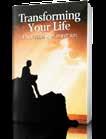
We worship a Savior who put skin, His skin, in the game and, as the saying goes, “left it all out on the floor.” He gave it all.
Many thanks for the May-June edition of the magazine. The entire issue is without doubt the best I have read so far. It not only points out the spirit behind the perverse age in which we find ourselves, but also points us to the hope of a glorious future in the Kingdom of God, under the righteous rule of the King of Kings and Lord of Lords, Christ Jesus. Surely the time of God’s Kingdom is at hand.
May God bless all the staff at Beyond Today.
Subscriber in Scotland
Thank you for this article. When we see how bold evil has become, we as believers need to be equally bold, which I believe this article is. In addition to the ceremonies/performances that were mentioned, another that comes to mind is the Gotthard Tunnel ceremony of 2016 (linked to Cern), which was another overtly Satanic display. It appears these events are meant as an invitation for the demonic realm to enter our world even more fully. Terrible times are ahead, but glory and thanks to the Father and Jesus Christ who will be victorious over it!
From the Internet
I agree wholeheartedly with this article, but it could have also mentioned not only how kids have become much more disrespectful, but also how adults act and where the kids learn such disrespectful behavior. That behavior is on display every day, 24/7—in the home, the church, the streets, the U.S. Congress and especially social media.
In addition, concerning the evil of the world, it is not just homosexuality —we see adultery on display, molesting children, slavery and human trafficking, domestic abuse and so much more. It’s all sin.
From the Internet
I just finished reading the article and I wanted to start an in-depth study on the armor of God. Are there any resources you could direct me to?
From the Internet
We’re glad you are looking to dive deep into the Bible. Take a look at this Bible Study series that covers this topic: freebiblestudyguides.org/ bible-teachings/armor-of-god.htm

I have to agree with this article. From the moment we’re born we were dropped into a spiritual war zone since the fall of mankind in Eden. Satan has power in our world. It’s limited, but he can wreak unimaginable havoc in our lives. I’ve been through that and know how bad he can make life. But the apostle Paul says we are to put on the full armor of God, to stand firm, take courage and fight against the power of the enemy. If we follow God’s Word and His direction for our lives, Satan can’t win.
From the Internet
If
really enjoy Beyond Today magazine. It gives a good understanding of the Bible and highlights information not found elsewhere. I highly recommend this magazine to all.
K.T., Facebook fan Visit Beyond Today on Facebook!
Beyond Today magazine
Someone has used my mailing address using false names to subscribe me to your literature. I know that the person(s) who has done this was doing it out of spite and jealousy. On the brighter side, if it hadn’t been for these harassers, I would not have known of your website—I love it! So tonight, I subscribed and ordered a few booklets. Though this person(s) seems to have some grudge against me through other ongoing harassment, I truly believe what is said in Romans 8:28: “And we know that God causes everything to work together for the good of those who love God and are called according to His purpose for them.”
From the Internet
May the Holy Spirit accompany you in the ministry of the magazine Pour l’Avenir [French edition of Beyond Today magazine] which strengthens and opens my spiritual knowledge. May God bless all those responsible for the magazine.
Subscriber in France
The study guides and other literature of the United Church of God have been very important in my learning about the Word of the Lord. I have become more enlightened about topics that I did not understand before. I keep each publication with great zeal, care and affection. And whenever I can, I make a donation.
Reader in Portugal
I thank the Lord for your publications which are so simple and easy to understand. Thank you so much. God bless.
Reader in India
I recently found some of your study guides in a rummage sale, and they are awesome. We have been looking for a church preaching what you write.
From the Internet
What denomination is the United Church of God? Or are you just an independent church that teaches just the Bible?
From the Internet
Thanks for your interest! Just as you say, United Church of God is not affiliated with any other Christian denomination. We strive to teach and follow the teachings of the Bible, as closely as possible to what Jesus Christ and the apostles in the New Testament Church taught. You can read a quick introduction to the United Church of God at ucg.org/im-new.
For current airing times or to view programs online, visit BeyondToday.tv
THE
Alabama
Huntsville/Decatur/Florence ch. 15, Sun
July-August 2023
Volume 28, Number 4
3XX,000
BeyondToday (ISSN: 1086-9514) is published bimonthly by the United Church of God, an International Association, 555 Technecenter Dr., Milford, OH 45150. © 2023 United Church of God, an International Association. Printed in U.S.A. All rights reserved. Reproduction in any form without written permission is prohibited. Periodicals Postage paid at Milford, Ohio 45150, and at additional mailing offices. Scriptural references are from the New King James Version (© 1988 Thomas Nelson, Inc., publishers) unless otherwise noted.

Publisher: United Church of God, an International Association
Council of Elders: Scott Ashley, Jorge de Campos, Aaron Dean, Dan Dowd, Victor Kubik, Len Martin (chairman), Darris McNeely, Tim Pebworth, Mario Seiglie, Rex Sexton, Brian Shaw, Paul Wasilkoff
Churchpresident: Rick Shabi Mediaoperationmanager: Peter Eddington
Managingeditor: Scott Ashley Senior writers: John LaBissoniere, Darris McNeely, Steve Myers, Gary Petty, Tom Robinson Copyeditor: Tom Robinson
Art director: Shaun Venish Circulationmanager: John LaBissoniere
To request a free subscription, visit our website at BTmagazine.org or contact the office nearest you from the list below. Beyond Today is sent free to all who request it. Your subscription is provied by the voluntary contributions of members of the United Church of God, an International Association, and others.
Personal contact: The United Church of God has congregations and ministers throughout the United States and many other countries. To contact a minister or to find locations and times of services, contact our office nearest you or visit our website at ucg.org/churches.
Unsolicited materials: Due to staffing limitations, unsolicited materials sent to Beyond Today will not be critiqued or returned. By their submission authors agree that submitted materials become the property of the United Church of God, an International Association, to use as it sees fit. This agreement is controlled by California law.
United States: United Church of God, P.O. Box 541027, Cincinnati, OH 45254-1027
Phone: (513) 576-9796 Fax (513) 576-9795 Website: BTmagazine.org email: info@ucg.org
Canada: United Church of God–Canada, Box 144, Station D, Etobicoke, ON M9A 4X1, Canada Phone: (905) 614-1234, (800) 338-7779 Fax: (905) 614-1749 Website: ucg.ca
Caribbean islands: United Church of God, P.O. Box 541027, Cincinnati, OH 45254-1027
Phone: (513) 576-9796 Fax (513) 576-9795 Website: BTmagazine.org email: info@ucg.org
Spanish-speaking areas: Iglesia de Dios Unida, P.O. Box 541027, Cincinnati, OH 45254-1027, U.S.A. Phone: (513) 576-9796 Fax (513) 576-9795 Website: ucg.org/espanol email: info@ucg.org
EUROPE
Benelux countries (Belgium, Netherlands and Luxembourg):
P.O. Box 93, 2800 AB Gouda, Netherlands
British Isles: United Church of God, P.O. Box 705, Watford, Herts, WD19 6FZ, England
Phone: 020-8386-8467 Fax: 020-8386-1999 Website: goodnews.org.uk
Eastern Europe and Baltic states: Head Sõnumid, Pk. 62, 50002 Tartu Postkontor, Estonia
France: Église de Dieu Unie–France, 24 avenue Descartes, 33160 Saint-Médard-en-Jalles, France
Germany: Vereinte Kirche Gottes/Gute Nachrichten, Postfach 30 15 09, D-53195 Bonn, Germany
Phone: 0228-9454636 Fax: 0228-9454637
Italy: La Buona Notizia, Chiesa di Dio Unita, Casella Postale 187, 24121 Bergamo Centro, Italy
Phone and Fax: (+39) 035 4523573 Website: labuonanotizia.org email: info@labuonanotizia.org
Scandinavia: Guds Enade Kyrka, P.O. Box 541027, Cincinnati, OH 45254-1027 email: norden@ucg.org
Cameroon: United Church of God Cameroon, BP 10322 Béssengue, Douala, Cameroon East Africa, Madagascar and Mauritius: United Church of God–East Africa
P.O. Box 75261, Nairobi 00200, Kenya email: kenya@ucg.org Website: ucgeastafrica.org
Ghana: P.O. Box AF 75, Adenta, Accra, Ghana email: ghana@ucg.org
Malawi: P.O. Box 32257, Chichiri, Blantyre 3, Malawi Phone: +265 (0) 999 823 523 email: malawi@ucg.org
Nigeria: United Church of God–Nigeria, P.O. Box 2265 Somolu, Lagos, Nigeria Phone: 8033233193 Website: ucgnigeria.org email: nigeria@ucg.org
South Africa: United Church of God–Southern Africa
Postnetnet Suite#28, Private Bag X025, Lynwood Ridge, 0040, South Africa
Phone: +27 (0) 797259453 Fax: +27 (0) 865727437 Website: south-africa.ucg.org email: UnitedChurchofGod.SA@gmail.com
Zambia: P.O. Box 23076, Kitwe, Zambia Phone: (0026)0966925840 email: zambia@ucg.org
Zimbabwe: United Church of God–Zimbabwe, c/o M. Chichaya, No 15 Mukwa Street, Eiffel Flats, Kadoma, Zimbabwe Phone: +263 772 922 362 email: zimbabwe@ucg.org
PACIFIC REGION
Australia and all other South Pacific regions not listed: United Church of God–Australia
GPO Box 535, Brisbane, Qld. 4001, Australia Free call: 1800 356 202
Phone: 07 5630 3774 Fax: 07 55 202 122 Website: ucg.org.au email: info@ucg.org.au
New Zealand: United Church of God, P.O. Box 22, Shortland St., Auckland 1140, New Zealand Phone: Toll-free 0508-463-763 Website: ucg.org.nz emaill: info@ucg.org.nz
Tonga: United Church of God–Tonga, P.O. Box 518, Nuku`alofa, Tonga
ASIA
All except Philippines and Singapore: United Church of God, P.O. Box 541027, Cincinnati, OH 45254-1027, U.S.A. Phone: (513) 576-9796 Fax (513) 576-9795 email: info@ucg.org
Philippines: P.O. Box 1474, MCPO, 1254 Makati City, Philippines Cell/text: +63 918-904-4444
Website: ucg.org.ph email: info@ucg.org.ph
Singapore: United Church of God, GPO Box 535, Brisbane, Qld. 4001, Australia
Website: ucg-singapore.org email: info@ucg.org.au
ALL AREAS AND NATIONS NOT LISTED
United Church of God, P.O. Box 541027, Cincinnati, OH 45254-1027
Phone: (513) 576-9796 Fax (513) 576-9795 Website: BTmagazine.org email: info@ucg.org
Canada Post Publications Mail Agreement Number 40026236.
Canada return address: BeyondToday, 2835 Kew Drive, Windsor, ON N8T 3B7.
Address changes: POSTMASTER—Send address changes to: Beyond Today, Box 541027, Cincinnati, OH 45254-1027.


